
- Majors & Careers
- Online Grad School
- Preparing For Grad School
- Student Life

Top 10 Best PhD in Law Programs [2024]

A PhD in law is an advanced qualification that will make you a true legal expert. You can use that credential to work as a legal research scholar or teach at a post-secondary level. This is not only a prestigious career path but also a lucrative one — today’s law PhD holders have an average salary of $93,000.
Today’s law schools emphasize an interdisciplinary approach to legal education, equipping students to work in a diverse range of fields.
Interested in an advanced criminal justice career? Below we’ll cover the top PhD in law programs, universities, and what you need to know before pursuing a doctorate in law.
Table of Contents
Top PhD in Law Programs
Yale university, law school.

Yale University’s Law School ranks first in the nation, with its 20 legal clinics offering an immersive experience for students. This PhD program has a purely academic focus. To qualify for admission, you’ll need to already have a JD (Juris Doctor) degree. If accepted, you’ll be able to benefit from Yale Law School’s acclaimed “Yale Teaching Program.”
- Courses: Criminal law & administration, international human rights, and complex civil litigation.
- Duration: 3 years
- Delivery: On-campus
- Tuition: Fully funded
- Financial aid: Full tuition coverage, health insurance, and stipend.
- Acceptance rate: 7%
- Location: New Haven, Connecticut
Stanford University
Doctor of the Science of Law (JSD)

Stanford University is another highly acclaimed institution in the field of law education with a tough admissions process. Only a few exceptionally gifted students with an international JD or LLB or a SPILS (Stanford Program in International Legal Studies) qualification are accepted into this program every year. The program has an emphasis on an interdisciplinary approach to law.
- Courses: Advanced antitrust, current issues in business law, and reinventing American criminal justice systems.
- Credits: 44 units
- Duration: 4 years
- Tuition : $64,350 per year
- Financial aid: Scholarships, fellowships, grants, assistantships, federal work-study, and loans.
- Acceptance rate: 5%
- Location: Stanford, California
The University of Chicago, The Law School
Doctor of Jurisprudence (JSD)

The Law School of the University of Chicago is renowned for its interdisciplinary approach to teaching and cross-lists its courses with other departments. The faculty include philosophers, political scientists, historians, and law scholars. Students also have the option to pursue a Doctorate in Comparative Law (D.Comp.L.) instead of a JSD if they wish.
- Courses: Antitrust & intellectual property, civil rights clinic: police accountability, and American legal history.
- Duration: 5 years
- Tuition : $7,647 per year
- Financial aid: Full tuition scholarship, fellowship, and health insurance.
- Acceptance rate: 7%
- Location: Chicago, Illinois
Columbia University, Law School
JSD Program

The Columbia Law School emphasizes experiential learning with law clinics, moot courts, and externships, offering opportunities for innovative education and valuable intellectual exchange. Students can conduct independent research with the help of their faculty advisors and they need to submit a DPR (Dissertation Progress Report) at the end of each year.
- Courses: Intellectual property & technology, international & comparative law, and law of the workplace.
- Duration: 5-6 years
- Tuition : $75,572 per year
- Financial aid: Grants, loans, and first child allowance.
- Location: New York City, New York
Harvard University, Law School
Doctor of Juridical Science (SJD)

Harvard University is one of the world’s most famous centers for education, and its Law School is equally renowned. The school has a unique grading system that uses the classifications honors, pass, low-pass, and fail. This flexible SJD program allows students to design their own study plan and choose faculty supervisors for independent research.
- Courses: Advanced comparative perspectives on US law, environmental justice, and strategic litigation & immigration advocacy.
- Duration: 4 years
- Delivery: On-campus
- Tuition : $67,720 per year
- Financial aid: Scholarships, grants, and loans.
- Location: Cambridge, Massachusetts
The University of Pennsylvania, Carey Law School
Doctor of Science of Law (SJD)

Carey Law School’s curricula cut across disciplinary and international lines to create law experts in every field, including business, health, technology, education, and social work. For admission to the Carey Law School PhD, you must already hold an LLM or JD from the same school or an institution of similar standing.
- Courses: Privacy & racial justice, appellate advocacy, and disability law.
- Tuition : Refer tuition page
- Financial aid: Full tuition, stipend, health insurance, and scholarships.
- Acceptance rate: 9%
- Location: Philadelphia, Pennsylvania
The University of Arizona, James E. Rogers College of Law

The University of Arizona’s James E. Rogers College of Law is one of the country’s most affordable top-tier law schools. This PhD law degree offers the choice of two concentrations: International Trade & Business Law, and Indigenous Peoples Law & Policy.
- Courses: International business & investment structuring, federal Indian law, and trusts & estates.
- Duration: 3-5 years
- Tuition and fees : $26,000 per year
- Financial aid: Scholarships, federal work-study, loans, veteran benefits, and fellowships.
- Acceptance rate: 85%
- Location: Tucson, Arizona
The University of Texas at Dallas, School of Economic, Political, and Policy Sciences
Doctor of Philosophy in Criminology

The University of Texas’ School of Economic, Political, and Policy Sciences creates professionals capable of dealing with modern issues like risk management, political violence, social inequality, healthcare, and international trade & conflict resolution. You’ll need a bachelor’s in criminology or a related discipline to apply for this PhD in criminology.
- Courses: Advances in criminology theory, evidence-based crime prevention, and regression & multivariate analysis.
- Credits: 75 semester credit hours
- Financial aid: Scholarships, grants, and loans.
- Acceptance rate: 79%
- Location: Richardson, Texas
Abraham Lincoln University, School of Law
Juris Doctor (JD)

This school was founded with to provide affordable education to working professionals who cannot attend regular law school. This doctorate in law is a flexible JD degree that can be completed entirely online through the university’s high-level education technology.
- Courses: Criminal law, civil procedure, and wills & trusts.
- Delivery: Online
- Tuition : $10,100 per year
- Acceptance rate: 90.3%
- Location: Glendale, California
Walden University
Online PhD in Criminal Justice

Walden University aims to help working professionals pursue advanced degrees and has been ranked #1 in research doctorates for African-American students. This program was one of the first online doctorates in criminal justice and allows students to explore national and international issues in criminal justice administration with a dual emphasis on contemporary theory and practice.
- Courses: History & contemporary issues in criminal justice, policy & analysis in criminal justice systems, and research theory, design & methods.
- Credits: 77 quarter credits
- Tuition : $636 per quarter hour
- Financial aid: Grants, scholarships, loans, and veteran benefits.
- Acceptance rate: 100%
- Location: Minneapolis, Minnesota
What Do You Need to Get a PhD in Law?
The exact requirements vary depending on the program, but you’ll typically need a LLB, LLM, or JD as a basic prerequisite.
As part of the admission process, you usually need to submit:
- Academic transcripts from previous studies
- Personal essay and/or research proposal
- Recommendation letters
To earn your doctorate, you’ll have to complete coursework, qualifying examinations, and usually a dissertation to a high standard.
Preparing for a Law Doctorate Program
The best PhD in legal studies programs are competitive, so it’s important to start preparing early. Keep up to date on developments in the field and research the best universities that offer your preferred specialization.
Look into leading faculty members in your areas of interest, and network by joining relevant professional communities. Once you’ve decided on your dream program, check admission requirements to prepare the strongest possible application.
Things to Consider When Choosing a Law PhD Program
Choosing the best law PhD program will depend on a range of factors, including your passions and interests. However, there are a few general factors that are essential for everyone deciding on a law school for their PhD to consider:
- Location: First, a school close by could save you on accommodation costs. But that’s not the only location consideration. You should look at your school destination for evidence of a booming legal or education industry. For example, New York is a hub for business, while Boston is known as a center for technology.
- Cost and funding: Ensure the program costs align with your budget and explore financial aid opportunities.
- Specialization: Some schools offer unique specializations like social justice, law and economics, and international law. Choose a program with a focus on your preferred specialization.
- Faculty: The university’s reputation is important, but its faculty credentials are equally critical. Explore faculty backgrounds by researching published papers and social media profiles like LinkedIn.
- Class sizes: Smaller class sizes mean better one-on-one attention; however, a larger cohort offers better networking opportunities.
- Placement support: What happens after graduation? Are you on the hook for finding a job on your own, or does the school offer placement options? Find out where alumni are employed to get an idea.
Why Get a Doctorate in Law?
A doctorate degree in law will allow you to pursue roles in the legal field as a scholar, researcher, or academic, and build a worthwhile career.
Several candidates apply for admission to PhD in jurisprudence programs every academic year, but top law schools have low acceptance rates, and only a few are accepted. For example, Harvard only has around 70 SJD students while hundreds or thousands may apply. Therefore, with this qualification, you’ll belong to an exclusive group of in-demand professionals.
Jobs for PhD in Law Degree Holders
Here are some common roles for PhD holders in law with the average annual salaries for each:
- General Counsel ($170,183 )
- Staff Attorney ($71,106 )
- Professor of Law ( $131,926 )
- Project Manager ( $76,264 )
- Senior Research Associate ( $75,029 )
Course Costs
The cost greatly depends on where you study, but prestigious law schools can charge annual tuition of around $65,000. Once you factor in living expenses, books, and facility fees, the total cost can add up to around $100,000 a year. However, you can find programs with tuition and fees for as little as $7,500 a year. Moreover, most top institutions offer full-tuition scholarships, stipends, and similar financial aid that cover almost all of your expenses.
Course Length
Typically, a PhD in law takes 3-5 years to complete. However, most programs will give you extra time to complete your doctorate if needed.
Skills You’ll Gain through a PhD in Law
Aside from giving you in-depth and expansive legal knowledge, PhD in law programs can also help you develop the following skills:
- Communication
- Presentation
- Critical Thinking
- Project Management
- Problem Solving
Key Takeaways
A PhD in law is an excellent choice for legal professionals seeking a career in research or academia. While a JD or Juris Doctor is equivalent to a PhD, the former equips you to become a law practitioner.
On the other hand, if you want to teach at a post-secondary level or conduct further legal research, you will need a PhD. Prepare early and choose a program that will best help you to achieve your career goals.
For more law education advice, take a look at our guide on the best master’s in criminal justice programs , or weigh up your options with the highest-paying PhDs .
PhD in Law FAQs
What is a phd in law called.
A PhD in law is usually called a Doctor of Law or Doctor of Laws. Some universities offer a JD (Juris Doctor or Doctor of Jurisprudence) degree, while others offer SJD (Doctor of Juridical Science) or JSD (Doctor of Science in Jurisprudence) programs.
Is a PhD in Law the Same as a JD?
A JD (Juris Doctor) degree is suitable for anyone who wants to practice as a licensed legal professional. These programs usually take three years to complete and are mostly coursework-focused.
On the other hand, a PhD in law may take 5-6 years to complete and usually involves a dissertation or major research project. If your aim is professional research or a job in academia in the discipline rather than practicing law, a PhD is better for you.
What is the Highest Degree in Law?
A PhD in law is generally considered the most advanced law degree. While some universities call it by other names, such as SJD (Doctor of Juridical Science) or JSD (Doctor of Jurisprudence degree), this is essentially the same thing.
How Long is a PhD in Law?
PhD Law programs typically take 3-5 years to complete. You may take longer for individual reasons, such as if you choose to study part-time.
What Does a PhD in Law Do?
A PhD in law will equip you to work in legal research or academia.

Lisa Marlin
Lisa is a full-time writer specializing in career advice, further education, and personal development. She works from all over the world, and when not writing you'll find her hiking, practicing yoga, or enjoying a glass of Malbec.
- Lisa Marlin https://blog.thegradcafe.com/author/lisa-marlin/ 12 Best Laptops for Computer Science Students
- Lisa Marlin https://blog.thegradcafe.com/author/lisa-marlin/ ACBSP Vs AACSB: Which Business Program Accreditations is Better?
- Lisa Marlin https://blog.thegradcafe.com/author/lisa-marlin/ BA vs BS: What You Need to Know [2024 Guide]
- Lisa Marlin https://blog.thegradcafe.com/author/lisa-marlin/ The 19 Best MBA Scholarships to Apply for [2024-2025]
Top 12 Best Laptops for Graduate Students in 2024
Top 10 best phd in theology programs [2024], related posts.

- Applying to Big Tech This Year? Here’s How to Ace It.

- 73% of job seekers believe a degree is needed for a well-paying role–but is it?

Tech Talent Crunch: Cities with More Jobs Than Workers

The Most Under-Rated Career Advancement Tip for 2024

Top 5 Best Psychology PhD Programs in 2024

Good News For Early Careers: Skills-Based Hiring is Surging

Leave a Reply Cancel reply
Your email address will not be published. Required fields are marked *
Save my name, email, and website in this browser for the next time I comment.
Recent Posts
- 12 Best Laptops for Computer Science Students
- Is a Master’s Degree Worth It? [2024 Guide]
- Graduate Certificate vs Degree: What’s the Difference? [2024 Guide]

© 2024 TheGradCafe.com All rights reserved
- Partner With Us
- Results Search
- Submit Your Results
- Write For Us

Doctor of Science of Law (JSD)
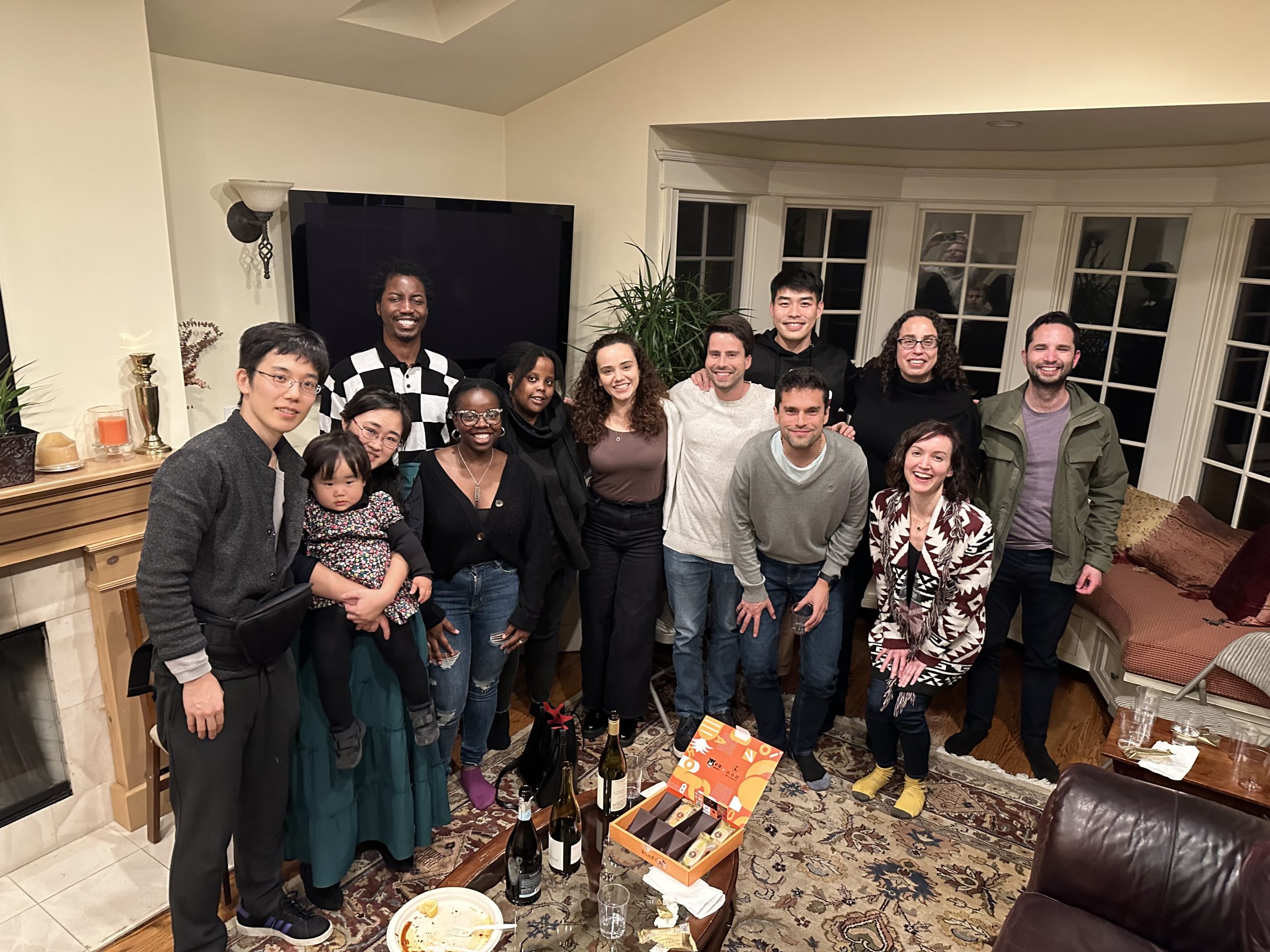
The Doctor of the Science of Law (JSD) is the Law School’s most advanced law degree, and is considered a doctorate equivalent to a Ph.D. It is designed for those interested in becoming scholars and teachers of law including interdisciplinary approaches to law.
Study toward the degree is open only to a small number of exceptionally well-qualified students who hold a JD or LL.B earned outside the United States. Students in the program develop substantive expertise in one or more fields of law and have the opportunity to pursue substantive and methodological training in allied disciplines across the broader university, including but not limited to, the social sciences, humanities, and engineering. The program culminates in the student producing a dissertation under the personal supervision of a Faculty committee comprised of law school professors as well as, where appropriate given the student’s interests, faculty from other departments of the university.
There are two different tracks for admission into the JSD program. A minimum of two students will be admitted from among students who have completed the Stanford Program in International Legal Studies (SPILS) at Stanford Law School. In addition, students at Stanford and at other law schools in the United States who will have completed LLM degrees prior to the commencement of the JSD program are encouraged to apply for admission and will be seriously considered. To be competitive, students applying from LLM programs must have completed (and must submit) a serious piece of independent, original research demonstrating their scholarly potential.
Admission to the JSD program is on a highly selective basis. Please note that admission to SPILS or to any Stanford LLM program does not imply a commitment by Stanford Law School to accept a student into the JSD program.
Some need-based funding, as well as funding to conduct research and attend conferences is available to admitted JSD students.
Questions concerning the JSD program should be directed to [email protected] .
HOW TO APPLY
JSD Candidates
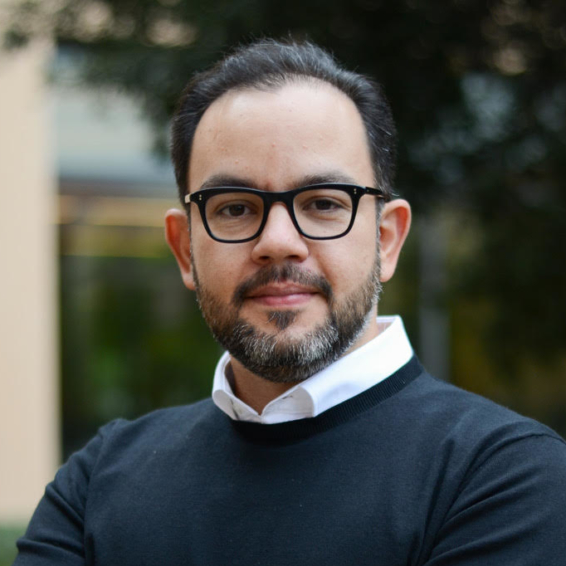
Luis Bergolla
- JSD Candidate
- Teaching Fellow, LLM Program in International Economic Law, Business and Policy (IELBP)
- Lecturer in Law
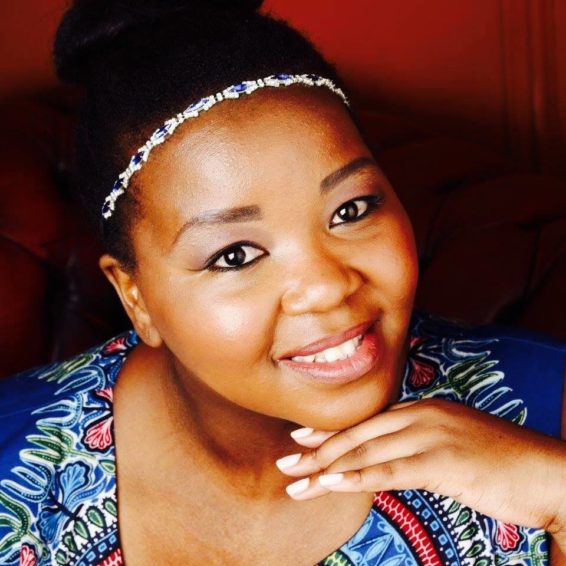
Silindile Buthelezi
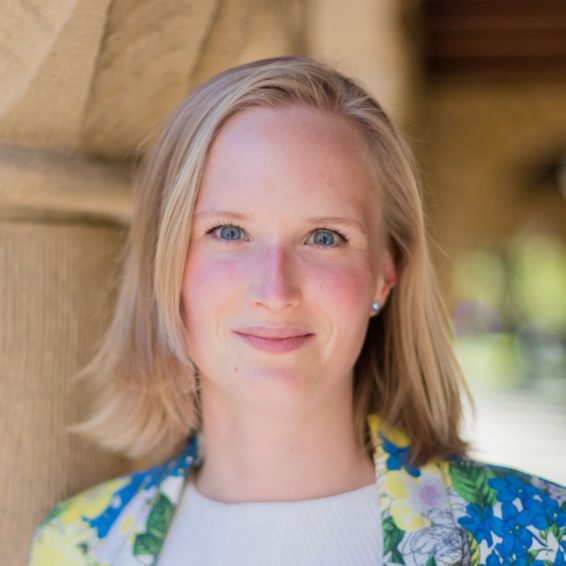
Rolando Garcia Miron
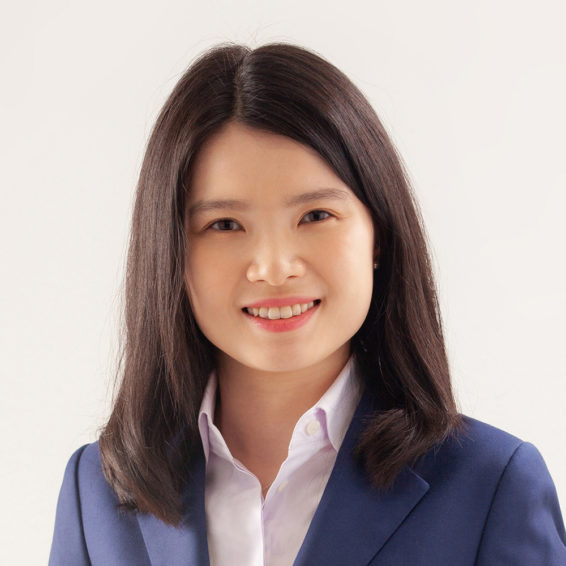
Yutang Hsiao
Tai-jan huang.
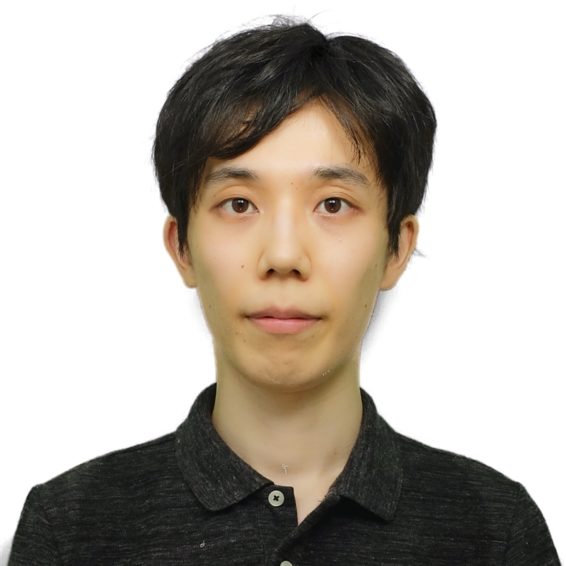
Takuma Iwasaki
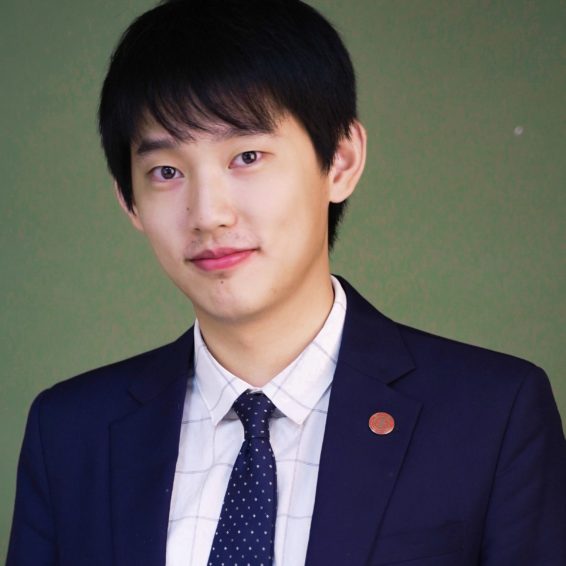
Maria Palacio
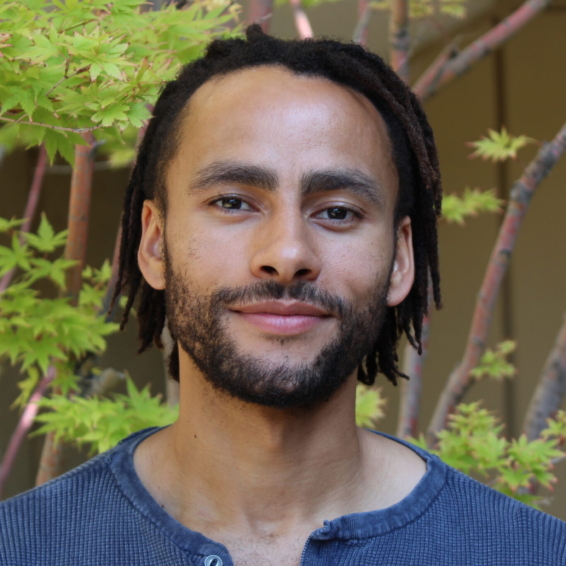
Michael Thorburn
Having a jsd from stanford law school opens up countless career opportunities..
Teaching in US Academia
Teaching Outside the US
Working in the Public Interest Sector
Working in the Private Sector
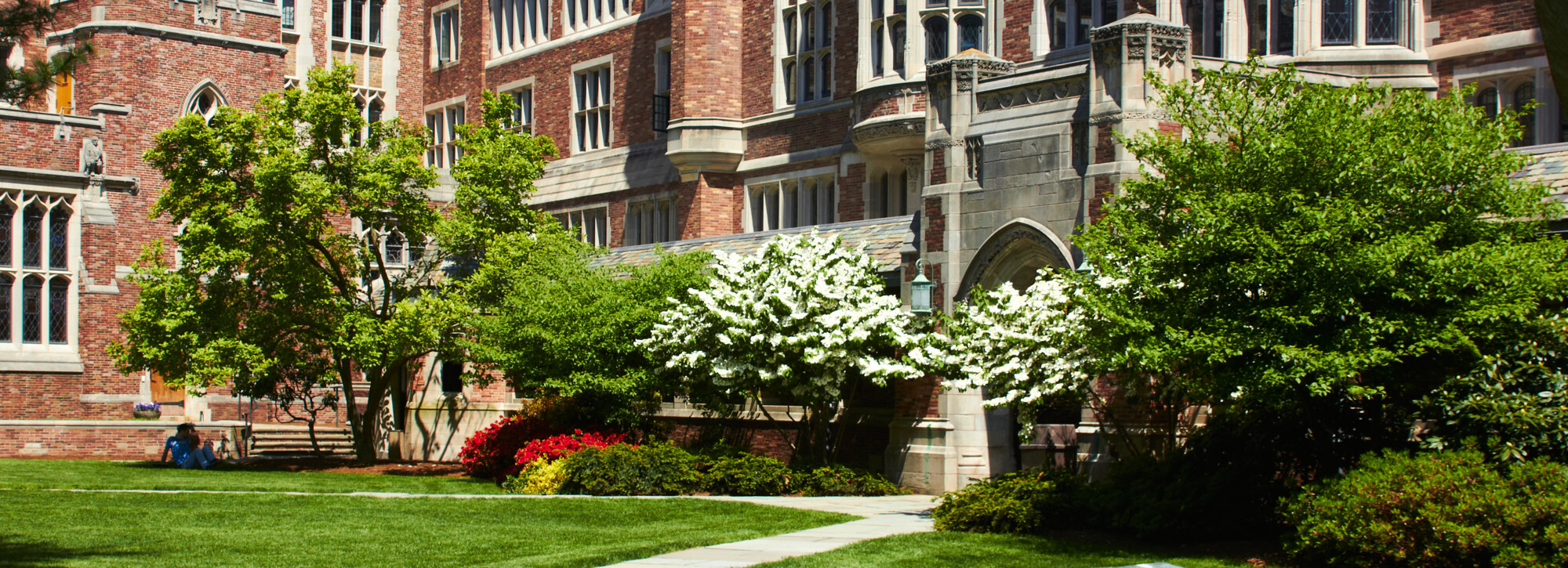
Ph.D. Program Details
Why a Ph.D. in Law? • Course of Study • Placement and Support on the Law Teaching Market • Tuition and Financial Aid
Why a Ph.D. in Law?
In addition to offering an opportunity to study and contribute to the evolution of law as an academic field of study, the Ph.D. in Law program provides an excellent pathway to a career in legal scholarship and law teaching. Whether it is right for any individual candidate depends on a variety of factors. If you are trying to decide between the Ph.D. in Law program and a fellowship or a visiting assistant professorship (VAP), you should keep in mind a number of considerations, including that the Ph.D. in Law program is a three-year course of study beyond the J.D. and that it provides a more structured program—including coursework, qualifying exams, and close faculty supervision—than do most fellowships or VAPs. The Ph.D. in Law program requires coursework, a written and an oral comprehensive exam, a dissertation—which may take the form of a traditional monograph or three law review articles—and teaching experience. You should also consider the availability of appropriate mentors in different programs. At Yale Law School, you will have a three-member faculty committee advising you throughout your time in the Ph.D. program, and you will have an opportunity to work closely with a wide range of Yale faculty in your courses and in your research and writing. In addition, you will have the opportunity to engage fully in the intellectual life of Yale Law School and Yale University's Graduate School of Arts and Sciences .
If you are trying to decide between the Ph.D. in Law and a Ph.D. in another discipline, many of the same considerations come into play. Please keep in mind that Ph.D. programs in economics, political science, history, and other fields train scholars to produce research responsive to the questions central to those disciplines. The scholarship produced by law faculties—and expected of candidates for teaching positions at law schools—is largely motivated by different sets of questions. While many students are able to apply their training in other disciplines to the study of law, a significant advantage of the Ph.D. in Law program is that it is designed specifically to prepare students for careers in legal scholarship, rather than in scholarship in another field. We should also stress that the Ph.D. in Law program welcomes applications from candidates with interdisciplinary research interests—significant advanced training in other disciplines as a part of the Ph.D. in Law program is encouraged, where appropriate.
Course of Study
Applicants to the Ph.D. in Law program should know the area of law in which they would like to specialize and should be prepared to articulate that interest in a research proposal. Applicants’ research proposals, however, are not expected to be as refined as a dissertation prospectus, and it is anticipated that the nature of students’ projects and interests will evolve over their time in the program. Each student will have a faculty Advisory Committee, which will work with the student to develop the research project into a dissertation prospectus and, eventually, a dissertation—which may take the form of three significant, publishable articles that might appear in a leading law review, or a single, book-length manuscript.
The First Year
Most students will dedicate much of their first year in the program to coursework. Students will work with their Advisory Committees to select as many as six courses that will best prepare them to carry out their research projects. In cases where students have already completed relevant graduate training, their Advisory Committees may waive up to four of the six required courses.
All first-year Ph.D. candidates will be required to take a two-semester pro-seminar on legal scholarship and methodologies. The first semester of this pro-seminar will be dedicated to reading and discussing canonical works of legal scholarship. The second semester will be devoted to the presentation and discussion of student papers in a workshop format. The pro-seminar, required of all Ph.D. candidates, will be the cornerstone of a genuine intellectual and professional community, serving as well as an opportunity for students working in different areas of law to interact with and to learn from each other and from the faculty leading these and other seminars and workshops.
During their second semester, all Ph.D. candidates will complete the first of two qualifying examinations. The pro-seminar will constitute the primary preparation for this first, written, examination. During their second semester and first summer in the program, students will also work with their Advisory Committees to prepare for a second qualifying exam in their area of specialization. Unlike the first qualifying exam, which measures the breadth of a candidate’s knowledge, the second is an opportunity to demonstrate mastery of the candidate’s area of specialization. The second qualifying exam will be conducted orally by the candidate’s Advisory Committee members and ordinarily will be administered at the beginning of the third semester in the program.
The Second Year
After passing the second qualifying exam, candidates will assemble a faculty Dissertation Committee. This committee often will—but does not have to—include the same faculty members who served on the candidate’s initial Advisory Committee. In their second year, students will work with their Dissertation Committees to bring their dissertation prospectus to fruition. The dissertation itself is expected to take the form of either a book-length manuscript or three publishable law review articles; it will usually constitute a portfolio of writing which students can use on the job market. Once the dissertation prospectus is approved, students are expected to spend the remainder of their time in the program, including summers, researching and writing the dissertation.
Each candidate in the Ph.D. in Law program also will gain training and experience in teaching, and will be required to participate in two semester-long teaching experiences. There will be a number of ways in which students may fulfill the teaching requirement. These may include (1) serving as a teaching assistant for a Law School course; (2) serving as a teaching assistant for a course in Yale College or another school at Yale; (3) co-teaching a class with a Yale Law School faculty member; (4) leading a Yale Law School Reading Group course; (5) teaching an independent seminar in one of the Yale Residential Colleges; or, (6) in unusual situations, teaching their own course. In all cases, students completing their teaching requirements will have faculty supervision, as well as close contact with and feedback from their advisors. The particular teaching assignment and the timing of this requirement will be determined by the candidate in consultation with his or her Advisory and/or Dissertation Committee, but ordinarily candidates will complete the first of their teaching requirements in the second semester of the second year of the program.
The Third Year
Those students interested in pursuing a career as a professor of law generally should expect to go on the job market during their third year in the program. Ph.D. candidates will be offered access to the same wide range of support in this endeavor as Yale Law School currently provides to its students, alumni, and fellows who enter the law teaching market. Students will otherwise devote the third year to completing their dissertation and, in many cases, completing a second teaching experience. Students will generally be expected to complete the program after three years, but requests to extend the course of study beyond three years will be considered on a case-by-case basis. In such cases, funding may be limited.
Placement and Support on the Law Teaching Market
Yale Law School has enjoyed tremendous success in helping its students secure law teaching positions. The Law School often places 25-40 of its graduates in tenure-track positions at law schools each year. Despite its relatively small size, Yale Law School has produced approximately ten percent of all professors currently teaching in American law schools. A recent study found that of the 189 faculty at the top sixteen law schools who had received their J.D. in the preceding fifteen years, a plurality—80 professors—graduated from Yale Law School. Many deans at law schools across the country and around the world also are Yale graduates.
The Law School provides comprehensive support to all its students, alumni, and fellows, guiding them through all stages of the legal teaching job market. Ph.D. in Law candidates enjoy access to the full range of support services currently available to Yale Law School students, alumni, and fellows.
For more information, consult the Law Teaching Program’s website .
Tuition and Financial Aid
Ph.D. in Law candidates will receive a full-tuition fellowship and a living stipend at an amount set by the Graduate School, Yale Basic Health coverage, and a Health Award covering the cost of hospitalization and specialty coverage. Financial support is conditioned on the student's making satisfactory academic progress. The Ph.D. in Law program is administered jointly by the Graduate School and the Law School. More information on financial aid and the cost of living in New Haven can be found on the Graduate School's website .
Section Menu
The PhD in Law program prepares students who have earned a JD from an American Bar Association accredited law school to enter law teaching or other careers that require a scholarly mastery of law. The program is designed to provide a broad foundation in the canonical texts and methods of legal scholarship and to support students in producing original scholarship in the form of a dissertation. The program strongly encourages, but does not require, interdisciplinary approaches to the study of law.
- Programs of Study
- PhD - Doctor of Philosophy
- Yale Law PhD Program
Robert Post
Director of Graduate Studies
Gordon Silverstein
Assistant Dean of Graduate Programs
Thais Sobczak
Departmental Registrar
- [email protected]
- 203-432-1696
Admission Requirements
Standardized testing requirements.
GRE is not accepted.
Program-Specific Application Requirements
A writing sample and a research proposal are required by this program.
English Language Requirement
TOEFL iBT or IELTS Academic is required of most applicants whose native language is not English.
You may be exempt from this requirement if you have received (or will receive) an undergraduate degree from a college or university where English is the primary language of instruction, and if you have studied in residence at that institution for at least three years.
Academic Information
GSAS Advising Guidelines
Academic Resources
Academic calendar.
The Graduate School's academic calendar lists important dates and deadlines related to coursework, registration, financial processes, and milestone events such as graduation.
Featured Resource
Registration Information and Dates
https://registration.yale.edu/
Students must register every term in which they are enrolled in the Graduate School. Registration for a given term takes place the semester prior, and so it's important to stay on top of your academic plan. The University Registrar's Office oversees the systems that students use to register. Instructions about how to use those systems and the dates during which registration occurs can be found on their registration website.
Financial Information
Phd stipend & funding.
PhD students at Yale are normally full-funded for a minimum of five years. During that time, our students receive a twelve-month stipend to cover living expenses and a fellowship that covers the full cost of tuition and student healthcare.
- PhD Student Funding Overview
- Graduate Financial Aid Office
- PhD Stipends
- Health Award
- Tuition and Fees
Alumni Insights
Below you will find alumni placement data for our departments and programs.
US Law Graduate Programs in America
1-25 of 38 results
Washington University in St. Louis School of Law
St. Louis, MO •
Washington University in St. Louis •
Graduate School
- • Rating 4.36 out of 5 11 reviews
Current Doctoral student: The faculty at WashU Law are experts in their respective subject areas, and they truly care about their students as well. Additionally, the course selection is phenomenal. ... Read 11 reviews
Washington University in St. Louis ,
Graduate School ,
ST. LOUIS, MO ,
11 Niche users give it an average review of 4.4 stars.
Featured Review: Current Doctoral student says The faculty at WashU Law are experts in their respective subject areas, and they truly care about their students as well. Additionally, the course selection is phenomenal. .
Read 11 reviews.
Cornell Law School
Ithaca, NY •
Cornell University •
- • Rating 4 out of 5 2 reviews
Master's Student: Experiential learning at Cornell Law School is a central part of our educational model. A robust set of clinical courses helps students move beyond the classroom into the world of practice; the Lawyering Program focuses on teaching the real-life skills employed by practicing attorneys, and externships around the country and across the globe put classroom learning into practice. ... Read 2 reviews
Cornell University ,
ITHACA, NY ,
2 Niche users give it an average review of 4 stars.
Featured Review: Master's Student says Experiential learning at Cornell Law School is a central part of our educational model. A robust set of clinical courses helps students move beyond the classroom into the world of practice; the... .
Read 2 reviews.
Dedman School of Law
Dallas, TX •
Southern Methodist University •
Southern Methodist University ,
DALLAS, TX ,
American University Washington College of Law
American University •
Graduate School •
WASHINGTON, DC
- • Rating 4.36 out of 5 11
Vermont Law and Graduate School
SOUTH ROYALTON, VT
- • Rating 3.6 out of 5 25
Chicago - Kent College of Law
Illinois Institute of Technology •
CHICAGO, IL
- • Rating 4.86 out of 5 7
Case Western Reserve University School of Law
Cleveland, OH •
Case Western Reserve University •
- • Rating 5 out of 5 4 reviews
Master's Student: The school was amazing, the professors were amazing, the area around the campus is nice. The only downside is the winters. I hate snow, and Cleveland gets a lot. ... Read 4 reviews
Blue checkmark.
Case Western Reserve University ,
CLEVELAND, OH ,
4 Niche users give it an average review of 5 stars.
Featured Review: Master's Student says The school was amazing, the professors were amazing, the area around the campus is nice. The only downside is the winters. I hate snow, and Cleveland gets a lot. .
Read 4 reviews.
Tulane Law School
New Orleans, LA •
Tulane University •
- • Rating 5 out of 5 6 reviews
Other: I am currently enrolled for the Juris Doctor (JD) Program at Tulane Law School. This program gives me the opportunity to participate in Journals, Moot Court, Clinics, Externship activities etc. I am currently an Editorial Board Member of the Sports Law Journal and a Staff Writer for the Sports Law Weekly publication. The curriculum at Tulane Law School is practical and hands-on and I look enjoy every bit of the academic and student life here. ... Read 6 reviews
Tulane University ,
NEW ORLEANS, LA ,
6 Niche users give it an average review of 5 stars.
Featured Review: Other says I am currently enrolled for the Juris Doctor (JD) Program at Tulane Law School. This program gives me the opportunity to participate in Journals, Moot Court, Clinics, Externship activities etc. I am... .
Read 6 reviews.
University of Washington College of Arts & Sciences
Seattle, WA •
University of Washington •
University of Washington ,
SEATTLE, WA ,
- Find college scholarships
UC Irvine School of Law
Irvine, CA •
University of California - Irvine •
- • Rating 5 out of 5 1 review
Doctoral Student: The J.D. program at the University of California, School of Law was an interdisciplinary, rigorous one. ... Read 1 review
University of California - Irvine ,
IRVINE, CA ,
1 Niche users give it an average review of 5 stars.
Featured Review: Doctoral Student says The J.D. program at the University of California, School of Law was an interdisciplinary, rigorous one. .
Read 1 reviews.
Pepperdine University School of Law
Malibu, CA •
Pepperdine University •
- • Rating 4.83 out of 5 6 reviews
Current Doctoral student: I really enjoy going to Pepperdine because the 2L and 3L students truly care about you and give you resources to help you become successful. They share their notes and even give you their old books. ... Read 6 reviews
Pepperdine University ,
MALIBU, CA ,
6 Niche users give it an average review of 4.8 stars.
Featured Review: Current Doctoral student says I really enjoy going to Pepperdine because the 2L and 3L students truly care about you and give you resources to help you become successful. They share their notes and even give you their old books. .
Loyola Law School
Los Angeles, CA •
Loyola Marymount University •
- • Rating 4.8 out of 5 5 reviews
Other: Loyola Law School is located in the legal, financial and media capital of Los Angeles. It is home to world-renowned faculty, and academic programs at the leading edge of the legal field. Our students want to change the world, and they’re doing it. ... Read 5 reviews
Loyola Marymount University ,
LOS ANGELES, CA ,
5 Niche users give it an average review of 4.8 stars.
Featured Review: Other says Loyola Law School is located in the legal, financial and media capital of Los Angeles. It is home to world-renowned faculty, and academic programs at the leading edge of the legal field. Our students... .
Read 5 reviews.
University of Dayton School of Law
Dayton, OH •
University of Dayton •
- • Rating 4 out of 5 7 reviews
Doctoral Student: I am a first year law student at Dayton. It was overwhelming before classes started as the emails came in listing the class requirements. The orientation week first semester brought relief. Having the year 2 students there to walk us through expectations was a game changer. Having the first year schedule set by the school was also a relief. The professors are very knowledgeable and make themselves available to work through some of the struggles of being a year 1 law student. The grading is competitive but fair. In order to succeed you have to be all in. The first semester I spent 40-50 hours a week outside of class time studying and working on assignments. Overall I am very satisfied with the pace of learning, the content we are learning and the commitment of the professors to help each student succeed. ... Read 7 reviews
University of Dayton ,
DAYTON, OH ,
7 Niche users give it an average review of 4 stars.
Featured Review: Doctoral Student says I am a first year law student at Dayton. It was overwhelming before classes started as the emails came in listing the class requirements. The orientation week first semester brought relief. ... .
Read 7 reviews.
School of Law - The University of Alabama
Tuscaloosa, AL •
The University of Alabama •
The University of Alabama ,
TUSCALOOSA, AL ,
Washington, DC •
Doctoral Student: It has been an amazing experience at American University Washington College of Law. This is such an underrated school with amazing faculty, wonderful facilities, and amazing opportunities that the school opens up for students in the D.C. legal community. ... Read 11 reviews
American University ,
WASHINGTON, DC ,
Featured Review: Doctoral Student says It has been an amazing experience at American University Washington College of Law. This is such an underrated school with amazing faculty, wonderful facilities, and amazing opportunities that the... .
- Sponsored Find Student Loan Options
- Intellectual Property Law Graduate Programs
- Paralegal Graduate Programs
University of Connecticut School of Law
Hartford, CT •
University of Connecticut •
- • Rating 4 out of 5 3 reviews
Doctoral Student: I am currently a 1L at the university of Connecticut, School of Law. The best part of this program is that I am able to work during the day and go to school at night. The flexibility allows me to pursue a JD while I work during the day. The teachers are extremely understanding, reasonable, and flexible as they understand my day job will take precedence. The university gives evening division students the ability to be active on campus and make clubs and programs accessible. ... Read 3 reviews
University of Connecticut ,
HARTFORD, CT ,
3 Niche users give it an average review of 4 stars.
Featured Review: Doctoral Student says I am currently a 1L at the university of Connecticut, School of Law. The best part of this program is that I am able to work during the day and go to school at night. The flexibility allows me to... .
Read 3 reviews.
Sturm College of Law
Denver, CO •
University of Denver •
- • Rating 3.33 out of 5 6 reviews
Doctoral Student: I currently attend the University of Denver, Sturm College of Law, and my experience thus far has been wonderful. Despite the difficulty and amount of content that comes with being a first year law student, the professors have shown us success is attainable, and supported me in achieving that success. ... Read 6 reviews
University of Denver ,
DENVER, CO ,
6 Niche users give it an average review of 3.3 stars.
Featured Review: Doctoral Student says I currently attend the University of Denver, Sturm College of Law, and my experience thus far has been wonderful. Despite the difficulty and amount of content that comes with being a first year law... .
University of Missouri - School of Law
Columbia, MO •
University of Missouri •
University of Missouri ,
COLUMBIA, MO ,
KU School of Law
Lawrence, KS •
The University of Kansas •
- • Rating 3 out of 5 2 reviews
Current Doctoral student: Some professors are very personable and friendly. The program itself is fairly comprehensive and covers most 1L topics as they should. Overall though the style of teaching is not the most conducive to learning and not a great environment to learn the law in. ... Read 2 reviews
The University of Kansas ,
LAWRENCE, KS ,
2 Niche users give it an average review of 3 stars.
Featured Review: Current Doctoral student says Some professors are very personable and friendly. The program itself is fairly comprehensive and covers most 1L topics as they should. Overall though the style of teaching is not the most conducive... .
Nebraska College of Law
Lincoln, NE •
University of Nebraska - Lincoln •
- • Rating 4 out of 5 1 review
Current Doctoral student: I love how many opportunities there are for internships and externships. The law school really goes above she beyond to help students find meaningful law experience during our time here. There are also many resources and support to help sieves prepare for and do well on the bar exam. The job placement statistics and bar pass rate speak for themselves. ... Read 1 review
University of Nebraska - Lincoln ,
LINCOLN, NE ,
1 Niche users give it an average review of 4 stars.
Featured Review: Current Doctoral student says I love how many opportunities there are for internships and externships. The law school really goes above she beyond to help students find meaningful law experience during our time here. There are... .
Chicago, IL •
- • Rating 4.86 out of 5 7 reviews
Doctoral Student: I've been very happy with Chicago-Kent. I have received plenty of support from staff and faculty across administration and in class. The school has many organizations to keep students engaged and involved on campus and the community. The school also does a wonderful job providing financial support to help students attend their program without major financial concerns. ... Read 7 reviews
Illinois Institute of Technology ,
CHICAGO, IL ,
7 Niche users give it an average review of 4.9 stars.
Featured Review: Doctoral Student says I've been very happy with Chicago-Kent. I have received plenty of support from staff and faculty across administration and in class. The school has many organizations to keep students engaged and... .
Thomas R. Kline School of Law
Philadelphia, PA •
Drexel University •
- • Rating 4 out of 5 4 reviews
Master's Student: I am starting courses in January of 2024, however, the enrollment, registration, and orientation process through Drexel's school of law has been very easy. Before the start of courses, there's been a substantial amount of support and resources provided, along with the opportunity to connect with individuals in charge of programs. The most beneficial experience thus far was the orientation and "test drive" event so that graduate candidates could meet their academic advisor and practice accessing the online learning platform before the start of courses. I'm looking forward to courses and interaction with peers and professors. ... Read 4 reviews
Drexel University ,
PHILADELPHIA, PA ,
4 Niche users give it an average review of 4 stars.
Featured Review: Master's Student says I am starting courses in January of 2024, however, the enrollment, registration, and orientation process through Drexel's school of law has been very easy. Before the start of courses, there's been a... .
Loyola University Chicago School of Law
Loyola University Chicago •
- • Rating 5 out of 5 3 reviews
Master's Student: A very personal and perspective changing experience. Professors are both knowledgeable and approachable at any time. Some external resource website are sometimes less user friendly. As a veteran, I feel the institution provides a valuable transition opportunity for military service members returning to civilian life. Associates in veteran's center seem both knowledgeable and willing to understand the difficulties involved in reentering a civilian lifestyle. The frequent on and off campus events allow students from a variety of ethnic, geographical, and religious backgrounds to be introduced outside traditional social settings. Promoting open and honest dialog without the fear of being judged. As a disabled veteran, it is very important to feel that you are heard and understood rather your views are agreed with or opposed. This is the environment I have witnessed so far in my personal academic journey at Loyola University Chicago. ... Read 3 reviews
Loyola University Chicago ,
3 Niche users give it an average review of 5 stars.
Featured Review: Master's Student says A very personal and perspective changing experience. Professors are both knowledgeable and approachable at any time. Some external resource website are sometimes less user friendly. As a veteran, I... .
DePaul University College of Law
DePaul University •
- • Rating 4.5 out of 5 4 reviews
Doctoral Student: Staff and students are amazing! Can always count on professors to give me the one-on-one time! I cannot recommend enough! ... Read 4 reviews
DePaul University ,
4 Niche users give it an average review of 4.5 stars.
Featured Review: Doctoral Student says Staff and students are amazing! Can always count on professors to give me the one-on-one time! I cannot recommend enough! .
McGeorge School of Law
Sacramento, CA •
University of the Pacific •
Master's Student: The program is very flexible and allows me to work full time. I think it has been very valuable and has prepared me for my career path. ... Read 7 reviews
University of the Pacific ,
SACRAMENTO, CA ,
Featured Review: Master's Student says The program is very flexible and allows me to work full time. I think it has been very valuable and has prepared me for my career path. .
Liberty Law School
Lynchburg, VA •
Liberty University •
Liberty University ,
LYNCHBURG, VA ,
School of Law - St. Mary's University - Texas
San Antonio, TX •
St. Mary's University •
- • Rating 3 out of 5 3 reviews
St. Mary's University ,
SAN ANTONIO, TX ,
3 Niche users give it an average review of 3 stars.
Loyola University New Orleans College of Law
Loyola University New Orleans •
Loyola University New Orleans ,
Showing results 1 through 25 of 38
Doctoral Programs
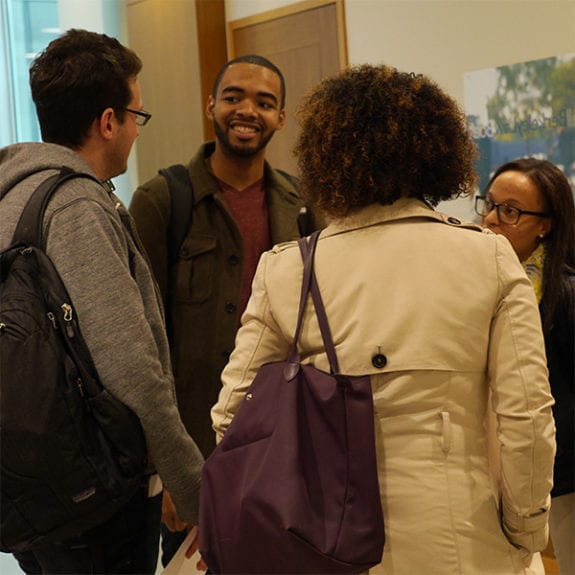
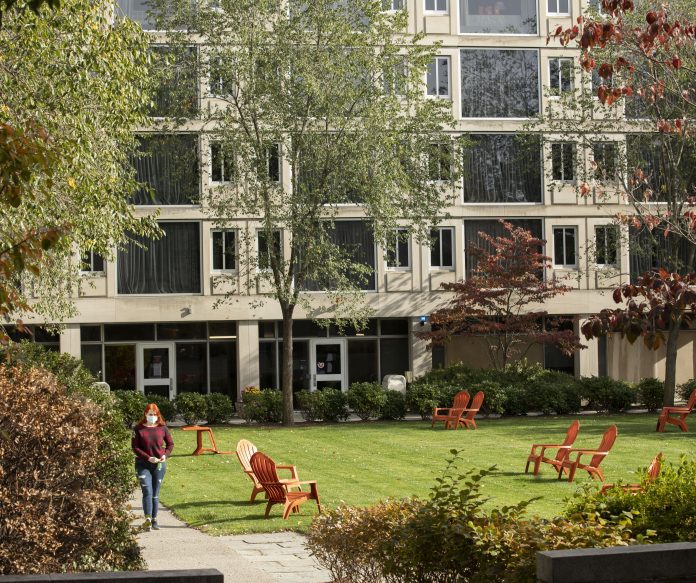
The Juris Doctor (J.D.) is a three-year program that first gives students the intellectual foundations for legal study, and then gives them the opportunity to focus their studies on areas of particular interest through advanced classes, clinics, and writing projects.
The Master of Laws (LL.M.) is a one-year advanced degree program for students who have already received their first law degrees. It attracts intellectually curious candidates of diverse backgrounds from 65+ countries, including lawyers working at firms or NGOs, government officials, law teachers, judges, activists, doctoral students, entrepreneurs, diplomats, and others.
Harvard Law School’s most advanced law degree, the Doctor of Juridical Science (S.J.D.) is modeled on the very best Ph.D. programs in other disciplines, and is designed for aspiring legal academics who, through sustained independent study, research and writing, work to produce a dissertation that constitutes a substantial and valuable contribution to legal scholarship.
Students interested in combining legal education with advanced training in a field not covered by one of the Law School’s formal joint degree programs can consider completing the J.D. program concurrently with another graduate degree program at Harvard University or another institution. In the past, students have arranged concurrent degree programs with the Harvard Graduate School of Arts and Sciences, the Harvard Divinity School, the Fletcher School of Law and Diplomacy at Tufts University, and the Massachusetts Institute of Technology.
Preparing Scholars for Distinguished Academic Careers
The most advanced degree program at UCLA Law, the Doctor of Juridical Science (S.J.D.) is designed for those seeking to pursue careers as teachers and scholars of law.
Apply to the SJD Program
The Doctor of Juridical Science (S.J.D.) Degree Program is designed for those seeking to pursue careers as teachers and scholars of law. This highly selective program is open only to applicants who possess a distinguished prior academic record in law, show promise of outstanding scholarship, and demonstrate a high potential for completing a scholarly dissertation of required quality. Applicants must hold a J.D. degree or foreign equivalent and an LL.M. degree (or be enrolled in a program leading to an LL.M. degree).
The S.J.D. Program provides a unique opportunity for outstanding international law graduates to study at the UCLA School of Law. In the sixty years since its foundation, UCLA School of Law has grown to an institution of over 1,000 students and approximately 100 full and part-time faculty members. It is recognized by academic surveys to be among the twenty best law schools in the United States. The school is particularly noted for the unsurpassed expertise of its faculty, whose intellectual strength is balanced by commitments to improved instructional programs and an active recognition of social responsibilities.
UCLA is the premier university in the Los Angeles metropolitan area, a dynamic, cosmopolitan cultural center of more than ten million people. A vital part of the nine-campus University of California system, UCLA has reached national prominence in a variety of disciplines and consistently ranks in the top half-dozen universities in the nation, as judged by its academic peers and in terms of fellowships and grants awarded. UCLA enrolls approximately 45,000 students across 13 schools and colleges, in over 100 academic departments, and in 23 research units. Its 19 libraries, special collections, and archives hold approximately 12 million print and electronic volumes.
Our distinguished law faculty help prepare these students across an extensive range of law subjects -- using a variety of effective and often interdisciplinary approaches to teaching -- for outstanding careers in academia, transactional and litigation practices, government, international and domestic public policy, business, and nonprofit public interest arenas.
Those who ultimately join us can look forward to a promising future for themselves and for those whom they will teach, inform, and represent.
Students in the S.J.D. program must enter with an LL.M. degree, remain in residence for two semesters, and take a minimum of ten units of graded coursework each semester, which must be approved by the supervising faculty member and Graduate Studies Committee. The choice of courses will be from among those generally offered at the Law School and will depend on the particular subject matter and course of study approved for each S.J.D. student.
Applicants should bear in mind that, due to curriculum scheduling and faculty availability, not every class listed is taught each year. This is most often true in the case of specialized seminars. The final schedule of law classes will be available shortly before the enrollment process begins in July. The law school academic year begins in the middle of August with a fall semester of 15 weeks. After examinations and vacation in December, classes resume early in January for another 15-week semester that ends in mid-May.
Upon successful completion of the residency requirement and performance in courses at a level substantially above the quality expected of J.D. candidates, the Graduate Studies Committee, following its favorable review of the candidate's course work and of the developed research proposal, shall constitute a doctoral committee. It shall consist of three faculty members, including the student's supervisor and a member from a department outside the Law School. Upon the successful oral defense of the research proposal before the doctoral committee, the Graduate Studies Committee shall admit the student to full candidacy for the S.J.D. degree.
Within two years of the completion of the residency period, unless for exceptional circumstances an extension is granted by the Graduate Studies Committee, a candidate shall submit, and successfully defend in an oral examination, a dissertation in the form of a monograph or series of closely related essays suitable for publication and constituting a substantial contribution to knowledge in its field.
At UCLA Law, S.J.D. students are part of a diverse, vibrant, and thriving international graduate community, comprised of the best and brightest students from around the globe. Our select group of S.J.D. students - alongside members of the LL.M. community – hail from cultures near and far, representing over 30 different countries each year. Upon completion of the program, our students transition into the next phase of their professional careers having developed strong friendships and connections that will last a lifetime. S.J.D. students will also get to know and work closely with our faculty, who are accessible, open and who create a flourishing collegial environment at the law school. As an S.J.D. student, you are in for one of the most intellectually stimulating, memorable, and exciting times of your life, and we look forward to welcoming YOU to the Bruin family.
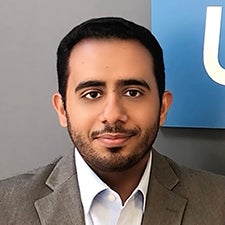
Hazim Alnemari is a current S.J.D. candidate at UCLA School of Law. In addition to his classical training in Islamic law, Alnemari earned his LL.B. from Taif University and his LL.M. from the University of Washington. He is an academic and legal counselor as well as a lecturer in constitutional law at the Islamic University of Madinah. Alnemari's research focuses on constitutionalism in Arab monarchies by tackling the intersection of law, religion, and monarchy. His research covers areas of comparative constitutional law, constitutional theory, political theory, and jurisprudence.
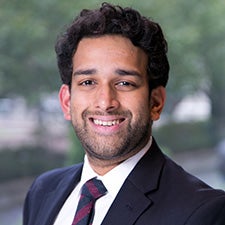
Suraj Girijashanker completed his legal education from the London School of Economics (LLB), School of Oriental and African Studies (LLM), and Columbia Law School (LLM). He is currently an Assistant Professor at Jindal Global Law School, India and Adjunct Faculty at the Centre for Migration and Refugee Studies at the American University in Cairo, Egypt. Prior to transitioning to academia, he served as a Legal Advisor with the Immigration and Protection Tribunal in New Zealand; Expert on Mission with UNHCR Turkey; Associate Refugee Status Determination Officer with UNHCR Egypt; and Legal Representative at Manus Island Regional Processing Centre in Papua New Guinea. His doctoral project traces imperial and racial narratives in international refugee law, focusing on the nexus between foreign intervention and displacement.
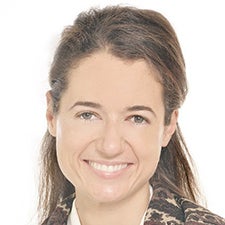
Sofia Grafanaki is a current S.J.D. candidate at UCLA School of Law. She previously earned her Bachelor of Arts in Jurisprudence from the University of Oxford and her LL.M. in Corporation Law at New York University School of Law. She also earned an M.B.A. from Columbia Business School and a second LL.M. in Intellectual Property and Information Law. She is admitted to the New York State bar, as a solicitor of the Senior Courts in London, and as an attorney in Athens, Greece. Grafanaki writes on the implications of big data on individual autonomy and democracy, as well as on speech and the role of the First Amendment in the online environment.
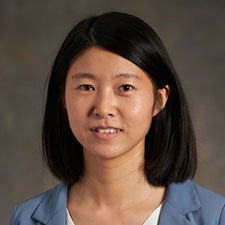
Qin Sky Ma is a current S.J.D. candidate at UCLA School of Law. Ma earned her J.D. from Tsinghua University in China and her LL.M. from UCLA School of Law with a specialization in international and comparative law. Ma passed the Chinese Bar Exam and worked as an assistant lawyer for several Chinese defense attorneys. As a student, Ma served as one of the executive editors for the Journal of International Law and Foreign Affairs at UCLA. She was a judicial extern at the California Court of Appeal, Second Appellate District in 2017. Ma taught criminal procedure at a local high school in Los Angeles through the UCLA Street Law Clinic. Ma is focusing her studies on comparative criminal justice and the international justice system.
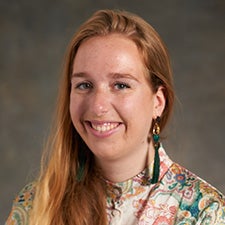
Wietske Merison is a current S.J.D. candidate at UCLA School of Law. She has an interdisciplinary educational background with an LLM in Public International Law from Utrecht University, an MA in Theology and Religious Studies from VU Amsterdam and a BA majoring in International Law, Religion and Anthropology from University College Roosevelt. She previously worked as a lecturer in International and European Law at Utrecht University and is currently employed as a Research Assistant to Professor Abou El Fadl. In her dissertation she will be working on the articulation of an Islamic framework for environmental justice, specializing in the fields of Islamic Law, Environmental Law and International Human Rights Law.
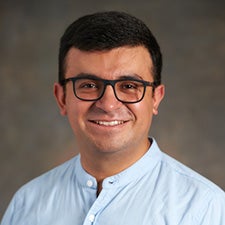
Diego Nicolás Pardo Motta is a current S.J.D. student at UCLA School of Law. He earned his LL.B. at the Universidad del Rosario (Bogotá, Colombia) with specializations in Administrative and Constitutional Law. Diego then earned a Master’s in Philosophy and a Master’s in Law with an emphasis in legal research from the Universidad de los Andes (Bogotá). Finally, he obtained an LL.M. at UCLA School of Law with specializations in Law & Philosophy, International & Comparative Law, and Human Rights. Diego has served as a Public Worker for the Government of Bogotá, a Law Clerk at the Colombian Council of State, and a Lecturer at the Universidad El Bosque and Universidad del Rosario. His research is focused on the philosophical, historical, and comparative significance of the Consultive Function of the Council of State.
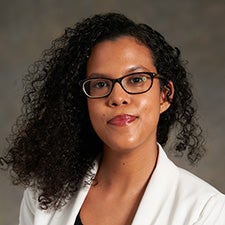
Marina Reis is a current S.J.D. candidate at UCLA School of Law. She previously earned her LL.B. from Pontifical Catholic University of Rio de Janeiro, Brazil with a concentration in criminal law and an LL.M. from UCLA Law. While a student, Reis worked at UCLA's Prison Education Program and was involved in the development of an academic curriculum for incarcerated persons in California. Reis currently works as a research assistant at the African American Policy Forum. Her research uses an intersectional lens to analyze gender-based violence in Brazil and the United States. She is particularly interested in investigating the (in)effectiveness of colorblind legislation to combat gender-based violence and the protection of women of color.
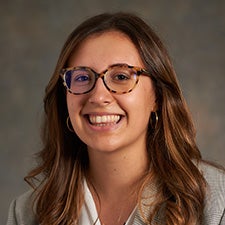
Alessia Zornetta is currently an S.J.D student at the UCLA School of Law. She is affiliated with the UCLA Institute for Technology, Law & Policy. Alessia obtained her LL.B at the University of Trento (Italy) and her LL.M at McGill University (Canada). Prior to UCLA, she worked as external researcher for the Institute for Legal Informatics at the University of Saarland (Germany). At present, she works as a student researcher at the UCLA Institute for Technology, Law & Policy and as graduate research assistant at the McGill Centre for Media, Technology & Democracy (Canada). Her research focuses mainly on platform governance, content moderation, privacy and data protection. During the S.J.D. program, Alessia will focus on the legal challenges concerning end-to-end encrypted platforms.
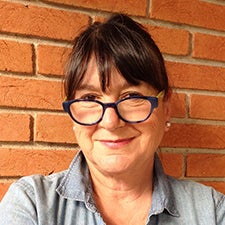
Hilal Elver is a 2009 graduate of the S.J.D. program at UCLA School of Law. She earned her J.D. as well as a Ph.D. in Law from the University of Ankara. During the S.J.D. program, her work was focused on the Critical Race Studies program and comparative constitutional law. She published her S.J.D. thesis: The Headscarf Controversy: Secularism and Freedom of Religion (New York, NY: Oxford University Press, 2012). She was a member of the Academic Council of the UN Least Developed Countries as well as a member of the official delegation of Turkey's UN Climate Change Framework Convention. Elver taught in the UC Santa Barbara Global Studies department until she was appointed by the United Nations Human Rights Council as the Special Rapporteur on the Right to Food. She held this position from 2014 until May 2020. She is currently in the process of writing a book on the right to food and food policies on a global level.
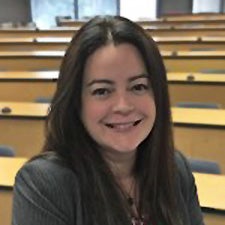
Willmai Rivera-Pérez is a 2011 graduate of the S.J.D. program at UCLA School of Law. She earned her Bachelor of Arts in Political Science and J.D. from the University of Puerto Rico in Río Piedras. In 2006 she earned her LL.M. from UC Berkeley School of Law. Her doctoral dissertation explored the role that the international human rights discourse has had in the adoption and development of the direct application of constitutional norms to relations arising from disputes between private parties in Latin America. Rivera-Pérez practiced as an attorney at Marchand Quintero Law Offices focusing on First Amendment litigation. She also clerked for Associate Justice Antonio S. Negrón García at the Puerto Rico Supreme Court. Rivera-Pérez is currently the Kendall Vick Endowed Professor of Public Law at the Southern University Law Center, where she teaches constitutional law, federal jurisdiction, federal civil procedure, succession, donations, and comparative law.
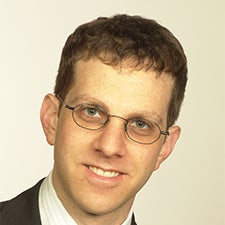
Martin Petrin is a 2011 graduate of the S.J.D. program at UCLA School of Law. Petrin earned his LL.M. from Columbia University and a Ph.D. from the University of St. Gallen. During his time at UCLA, Petrin worked on corporate directors' and officers' liability, exploring various aspects of managers' liability towards shareholders as well as third parties. Petrin previously practiced law with a leading international business law firm and is admitted to the bar in New York and Switzerland. He has been a visiting professor at NYU London and a visiting scholar at the University of Cambridge and the Max Planck Institute for Comparative and Private Law in Hamburg. He is currently the Dancap Private Equity Chair in Corporate Governance at Western University in Canada, having moved there from University College London in the UK, where he served as Associate Professor and Vice Dean (Innovation).
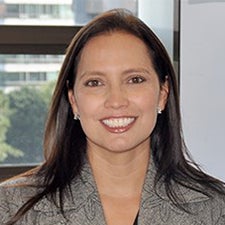
Astrid Liliana Sánchez-Mejía is a 2015 graduate of the S.J.D. program at UCLA School of Law. She earned her law degree from Javeriana University, Colombia and her LL.M. from Los Andes University, Colombia. She earned another LL.M. in legal theory from New York University. During her time at UCLA, her research examined the effects of adversarial criminal justice reforms on victims' rights by specifically analyzing the Colombian criminal justice reform of the early 2000s. She published her thesis: Victims' Rights in Flux: Criminal Justice Reform in Colombia, (new York, NY: Springer, 2017). Sánchez-Mejía has taught at various universities and training centers for state representatives in Colombia and Latin America. She is currently a Professor of Law at Javeriana University, Colombia.
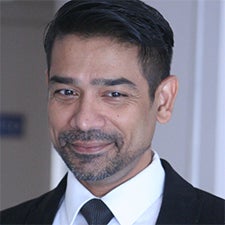
Sumit Baudh is a 2016 graduate of the S.J.D. program at UCLA School of Law. He earned his Bachelor of Arts and LL.B. from the National Law School of India University, Bangalore and graduated with honors. He earned his LL.M. from the London School of Economics. Baudh is qualified to practice law in India and enrolled as a solicitor n.p. with the Law Society in England and Wales. He was formerly an assistant professor at the National Law School of India University, Bangalore. As an independent consultant, Baudh has advised national and international organizations including the U.S.-based Arcus Foundation, the United Nations Development Program, the Commonwealth Human Rights Initiative, and the Government of India (among others). Currently, he is an associate professor at the Jindal Global Law School in Sonipat, India.
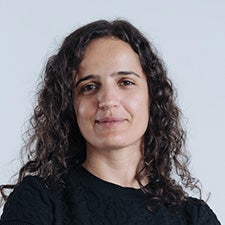
Catarina Prata is a 2017 graduate of the S.J.D. program at UCLA School of Law. She earned her first law degree with a specialization in international law and a Master's degree in International Legal Sciences, both from the New University of Lisbon in Portugal. Prata was a Fulbright Scholar at New York University School of Law, where she obtained her LL.M. degree with a specialization in International Legal Studies. Prata conducted her research on the law of armed conflicts. She focused on private security and military companies and the possible alternatives for their regulation under international law. Prata has worked for Amnesty International in Portugal as a research and advocacy coordinator, and she currently works as a consultant in her field of expertise.
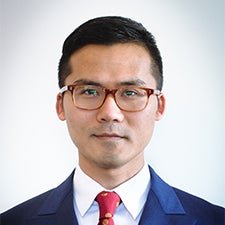
Yang Liu is a 2018 graduate of the S.J.D. program at UCLA School of Law. Liu previously earned law degrees from Harvard Law School and Tsinghua University, China. His doctoral dissertation focused on judicial politics within and among international courts. Liu also clerked at the International Court of Justice (ICJ). Liu continues to research the judicial politics of international courts, theory and history of international law, and comparative foreign relations law. He currently serves as an assistant professor at Renmin University of China Law School, where he teaches international law and comparative politics.
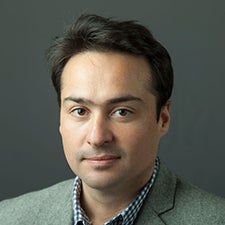
Ricardo Lillo is a 2020 graduate of the S.J.D. program at UCLA School of Law. Lillo earned his LL.B. from Universidad Diego Portales School of Law in Santiago, Chile. He also earned his LL.M. in Public Interest Law and Policy from UCLA. His doctoral thesis explored the relation between the right to a fair trial and access to justice, and he proposed a new theoretical approach for its understanding in non-criminal matters. Lillo served as a Hoffenberg Research Fellow and as a fellow at UCLA's Transnational Program on Criminal Justice. Lillo is currently a faculty member at Universidad Adolfo Ibañez School of Law, where he teaches procedural law, and is a member of the Law and Society Research Centre.
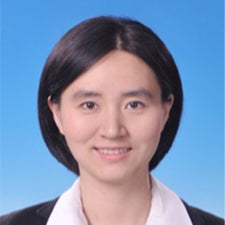
Qin Xia is a 2020 graduate of the S.J.D. program at UCLA School of Law. She previously earned her LL.B. with a minor in English Literature from Beijing Foreign Studies University and her LL.M. from the University of Michigan. Xia also earned another master's degree in international economic law from Beijing Foreign Studies University. During her time in the S.J.D. program, she focused her studies on information disclosure and investor protection in the securities markets. Xia is admitted as an attorney in China and is also admitted to the New York State bar. Prior to coming to UCLA, she practiced as a corporate attorney with China Orient Asset Management Corporation. Xia later joined Nanjing University Law School as an assistant professor.
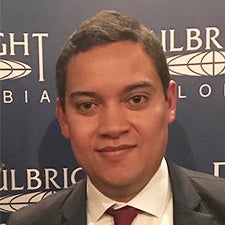
Andrés Caicedo is a 2021 graduate of the S.J.D. program at UCLA School of Law, and he is a Fulbright Scholar. He earned his first law degree from Rosario University in Colombia. Caicedo also holds an LL.M. with a specialization in Critical Race Studies from UCLA School of Law, as well as a Master of Public Law from Charles III University of Madrid in Spain. He has worked as a law professor at two universities in Colombia, teaching human rights, constitutional law and sociology of law. During his time in the S.J.D. program, his research focused on issues related to Critical Race Theory, affirmative action, civil rights, equality, constitutional law, and human rights. His doctoral thesis focused on Critical Race Theory and race-conscious remedies to address racial subordination in Colombia.
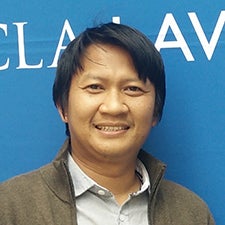
Zezen Zaenal Mutaqin is a graduate of the S.J.D. program at UCLA School of Law. He previously earned his LL.B from the State Islamic University Jakarta School of Shari'a and Law and his LL.M from Melbourne University School of Law. Prior to the S.J.D. program, Mutaqin worked for the International Committee of the Red Cross (ICRC) as an assistant to the Asia Pacific Adviser on Humanitarian Affairs and a lecturer at UIN. During the S.J.D. program he focused his studies on the interpretation, articulation, and enforcement of Islamic jus in bello (Islamic law regulation on the use force) and its relation to international humanitarian law. He is now head of the Master Degree Program in the Faculty of Islamic Studies at the Universitas Islam Internasional Indonesia.

Bryan Hance is a graduate of the S.J.D. program at UCLA School of Law. He previously earned his Bachelor of Arts degree from UCLA, his J.D. from Pepperdine University School of Law, and his LL.M. degree from UCLA School of Law. Hance clerked for Justice Edward Panelli of the California Supreme Court. Previously, he taught at Glendale University College of Law in Los Angeles and was a partner at the law firm of Lewis Brisbois Bisgaard & Smith, where he handled litigation and transactional matters. He also served as Associate General Counsel at Pepperdine University and as Executive Director of the Center for Conflict Resolution, where he handled training, arbitrations, and mediations. In addition to his law practice, Hance serves as a professor and program director of the pre-law and paralegal studies programs at National University in San Diego.
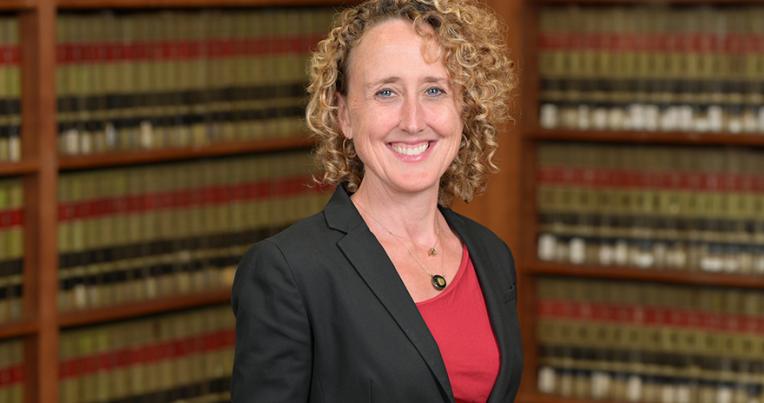
Hannah Garry is elected to the executive council and executive committee of the American Society of International Law
Joseph fishkin participates in a fact-check for verify about the supreme court and the right to protest, aaron littman talks to calmatters about efforts to improve jails.
Hear exclusive application tips from Assistant Dean Jason Fiske before the General application deadline on May 1st, 2024.
A conversation with Catrice Monson, Chief Executive Officer at Groupfully and Joshua Brackett, Co-Founder of Groupfully and Sinousia

Coordinated JD/PhD Program
Harvard Law School and the Harvard Kenneth C. Griffin Graduate School of Arts and Sciences
The Coordinated JD/PhD Program is designed for students interested in completing interdisciplinary work at Harvard University and is founded on the belief that students’ legal studies and their arts and sciences graduate studies can be mutually enriched through this pursuit. Students completing the coordinated program receive a JD from Harvard Law School (HLS) and a PhD from the Harvard Kenneth C. Griffin Graduate School of Arts and Sciences (Harvard Griffin GSAS). It is expected that these students will be strong candidates for teaching posts at law schools and in arts and sciences programs, as well as for other positions in law and academia. Prospective students interested in the coordinated program may reach out to HLS J.D. Admissions and the Harvard Griffin GSAS Office of Admissions to learn more. Current and admitted students interested in the coordinated program are encouraged to contact April Pettit , in the Office of Academic Affairs at HLS for questions about the JD program, or Dan Volchok , Assistant Dean of Student Success at Harvard Griffin GSAS for questions about the PhD programs.
Prospective students must separately apply to and be admitted to both HLS and a Harvard Griffin GSAS PhD program in order to participate in the coordinated JD/PhD program.
- Students enrolled in HLS, but not yet admitted to Harvard Griffin GSAS, must apply to Harvard Griffin GSAS no later than the 2L year, meeting the Harvard Griffin GSAS application deadline for matriculation the following year.
- Students enrolled in Harvard Griffin GSAS, but not yet admitted to HLS, should apply to HLS no later than the G3 year, meeting the HLS application deadline for matriculation the following year.
- Please see below for details about participation in the coordinated program for Harvard Griffin GSAS students who apply and are admitted to HLS after the G3 year.
Once admitted to both schools, students must submit a proposed Plan of Study to the coordinated program no later than October 1 of the academic year following admission to both schools. Students should submit the Plan of Study to April Pettit in the Office of Academic Affairs at HLS.
Please note: Harvard Griffin GSAS students who apply to and are admitted to HLS after the G3 year at Harvard Griffin GSAS must then separately apply to the coordinated program. The application to the coordinated program should include (1) a statement detailing the way in which the student plans to integrate his or her legal studies with his or her graduate studies including how work done at HLS will inform the dissertation work and vice versa; and (2) a letter of support from the primary Harvard Griffin GSAS advisor; and (3) the Plan of Study.
The JD/PhD committee will review the applications to determine admission to the coordinated program.
Students will be registered in only one School during any given semester/term. Pursuant to ABA rules, students must complete all requirements for the JD degree within seven years of the date they first enroll in HLS ; they may graduate from HLS before completing the PhD. Students must have satisfactorily completed at least 16 half courses in their Harvard Griffin GSAS department to receive the PhD. Students in the coordinated program will have two primary faculty advisors, one at HLS and one at Harvard Griffin GSAS, who will jointly advise students.
Students will be expected to complete the first-year program, three upper-level fall or spring semesters, and two winter terms at HLS, for a total of five fall and spring semesters and three winter terms. In lieu of the sixth HLS semester generally required of JD students, students in the coordinated program may take a semester at Harvard Griffin GSAS, completing courses or dissertation work pre-approved by HLS, and equivalent to at least 10 HLS credits. This Harvard Griffin GSAS semester may be taken only after a student has matriculated at HLS and completed their entire first year of study there. Students and their faculty advisors will determine the most appropriate sequencing for each student’s course of study, keeping in mind the HLS course, credit, and residency requirements for this program.
Course and Credit Requirements
First-year program.
The first year at HLS consists of (1) Civil Procedure, Constitutional Law, Contracts, Criminal Law, Legislation and Regulation, Property, and Torts; (2) First-year Legal Research and Writing; (3) January Experiential Term; and (4) a spring upper-level elective at HLS of a minimum of 2 and a maximum of 4 classroom credits.
Upper-Level Years
Credit and residency requirements.
Students must earn no fewer than 52 credits beyond the first year, including 36 HLS classroom credits. Classroom credits include those connected to courses, seminars and reading groups, but not writing or clinical credits. The 36 required classroom credits also include the required minimum of two credits to satisfy the Professional Responsibility Requirement and credits from the required winter terms (provided that the course chosen offers classroom credits). Of the remaining 16 required HLS credits, a maximum of ten are earned through courses or tutorials taken in Harvard Griffin GSAS and/or for dissertation writing (see below). Note that students must have their advisor’s approval before engaging in a semester of Harvard Griffin GSAS dissertation writing that is expected to count toward the HLS credit requirements . The remaining six required HLS credits may be earned in classroom, writing or clinical courses.
While at HLS, students must be enrolled in a minimum of ten total credits each semester in HLS or Harvard Griffin GSAS, with no fewer than eight of these being HLS classroom credits toward the requirement of 36 HLS classroom credits.
Winter Term Requirement
Students also must enroll in the HLS winter term two times during their upper-level years in the program. Each of the winter terms must follow a fall term enrollment or precede a spring term enrollment at HLS. Students may register for a course of two or three credits. JD/PhD students will be permitted to spend one of the winter terms in the HLS Winter Writing Program, provided they are engaged in written work for HLS credit according to the rules of that program.
Written Work Requirement
JD/PhD students must complete the JD Written Work Requirement. Students are permitted to satisfy the requirement with a portion of their dissertation, provided this work meets HLS standards for written work. However, any portion of the dissertation counted toward the JD Written Work Requirement cannot also be used as part of the 10 HLS-equivalent credits earned during a student’s Harvard Griffin GSAS semester. Further information about the J.D. Written Work Requirement and the Winter Term Writing Program is available from the HLS Registrar’s Office .
Pro Bono Requirement
JD/PhD students must complete the HLS Pro Bono Requirement of 50 hours of public service.
Residency Requirement
A minimum of two years of full-time study in residence is required for all PhD programs in the Harvard Griffin GSAS. During the period of registration at HLS, coordinated JD/PhD students will have “study-at-another-Harvard-school” status in Harvard Griffin GSAS.
Structure of Academic Work
Students will ordinarily be enrolled for at least four years (8 terms) in Harvard Griffin GSAS. They must complete at least 16 half courses to receive their PhD. Students may cross-register for a limited number of Harvard Griffin GSAS courses during their upper-level terms at HLS. Depending on the Harvard Griffin GSAS department, these courses may count toward the PhD. However, JD/PhD students may count a maximum of 10 credits from Harvard Griffin GSAS coursework or dissertation writing toward the JD. Therefore, students planning to spend a semester enrolled at Harvard Griffin GSAS taking courses or writing the dissertation for which they will earn 10 HLS credits may not also count cross-registered Harvard Griffin GSAS courses toward the JD.
General Examinations
In most departments, once having completed the required coursework, students must pass a general examination or other preliminary or qualifying examinations before undertaking independent research on a dissertation. Normally, when the nature of the field and previous preparation permit, students should pass these examinations by the end of the second year of full-time academic residence.
PhD Dissertation
The student’s dissertation prospectus must be approved by the department. A student who wishes to present as a dissertation a published article, series of articles, book or other document, or a manuscript that has been accepted for publication, must have the approval of the department concerned. In no case, however, may a dissertation be presented that has already been submitted toward another degree, either at Harvard or elsewhere. The Dissertation Acceptance Certificate must be signed by at least three readers approved by the student’s department, two of whom must be members of the Faculty of Arts and Sciences (FAS). FAS emeriti (including research professors) and faculty members from other schools at Harvard who hold appointments on GSAS degree committees are authorized to sign the Dissertation Acceptance Certificates as FAS members. GSAS strongly recommends that the chair of the dissertation committee be a member of FAS. The third reader may be a member of the HLS faculty.
Requirement of Satisfactory Status
Continuous registration, a satisfactory grade record, and evidence that satisfactory progress is being made toward the degree are required of all candidates for graduate degrees offered by FAS. All students in Harvard Griffin GSAS must be making satisfactory progress in order to be eligible for any type of financial aid and teaching. The following five provisions are the general definition of satisfactory progress during registration in Harvard Griffin GSAS:
- During the first two years of graduate study any student who has completed expected requirements is considered to be making satisfactory progress.
- In each of the first two years, a student must have achieved the minimum grade-point average required by the faculty, a B average. (see Harvard Griffin GSAS Policies: Grade and Examination Requirements ).
- By the end of the third year, a student must have passed general examinations or the departmental equivalent.
- By the end of the fourth year, a student must have obtained approval of a dissertation prospectus or its departmental equivalent.
- By the end of the fifth year and each subsequent year during which a student is allowed to register, they must have produced at least one acceptable chapter of the dissertation.
For more information about satisfactory progress, please see Harvard Griffin GSAS Policies .
Other Requirements
Ordinarily, programs will have a language requirement and an expectation of teaching. Students should consult with their Harvard Griffin GSAS departments for more information about these requirements.
There are a number of possible academic schedules for students pursuing both degrees. Three sequences are outlined below, but students may propose alternative sequences. In considering their courses of study, students should be aware that their financial aid packages might be affected at the school in which they defer enrollment.
Year 1: HLS Year 2: Harvard Griffin GSAS Year 3: Harvard Griffin GSAS Year 4: HLS Year 5: 1st term, HLS Year 5: 2nd term, Harvard Griffin GSAS (earning the equivalent of 10 HLS credits in dissertation work) Following year(s): Harvard Griffin GSAS until completion of dissertation
Year 1: Harvard Griffin GSAS Year 2: Harvard Griffin GSAS Year 3: HLS Year 4: Harvard Griffin GSAS Year 5: HLS Year 6: 1st term, HLS Year 6: 2nd term, Harvard Griffin GSAS (earning the equivalent of 10 HLS credits in dissertation work) Following year(s): Harvard Griffin GSAS until completion of dissertation
Year 1: HLS Year 2: HLS Year 3: Harvard Griffin GSAS Year 4: Harvard Griffin GSAS Year 5: 1st term, HLS Year 5: 2nd term, Harvard Griffin GSAS (earning the equivalent of 10 HLS credits in dissertation work) Following year(s): Harvard Griffin GSAS until completion of dissertation
Updated Plans of Study
By October 1 each year, current JD/PhD students should submit an updated Plan of Study to April Pettit, in the HLS Office of Academic Affairs.
Other Academic Information
Faculty advising.
Students in the program will have primary faculty advisors at both HLS and at Harvard Griffin GSAS. If possible, HLS faculty advisors should be selected before the completion of the 2L year. The HLS faculty advisor must sign off on any dissertation writing a student expects to use for JD credit. In some Harvard Griffin GSAS departments, the director of graduate studies serves as the faculty advisor during the first two years of study. Faculty advisors will supervise students’ academic work, advise students on their courses of study and on specific classes appropriate for their PhD work, and approve the courses of study for their students on an annual basis. If appropriate, the HLS advisor will be the third reader on the student’s dissertation committee, with at least two readers required to be members of FAS.
Leaving the JD/PhD Program
If a student fails to make adequate progress toward the PhD, the student’s faculty advisors will be permitted to withdraw the student from the program. In such cases, in order to receive the JD degree, a student will still need to meet the graduation and credit requirements for the JD degree.
Tuition and Financial Aid
Harvard law school.
Students must pay five semesters of full tuition. Students will be eligible for HLS financial aid for all semesters during which they pay tuition to HLS. For more information on Financial Aid, visit the Student Financial Services Financial Aid webpage .
Harvard Kenneth C. Griffin Graduate School of Arts and Sciences
The minimum financial requirement for the PhD is at least four terms of full tuition followed by two years of reduced tuition and a facilities fee unless the degree is completed in less than four years. The financial aid awarded upon admission to the PhD program is available during those terms in which the student is enrolled in Harvard Griffin GSAS. Students should refer to their notice of financial support provided by their department upon admission to Harvard Griffin GSAS. Students should consult with their GSAS departments for more information.
Administrative Information
The HLS Registrar’s Office, the FAS Registrar’s Office, the GSAS Assistant Dean of Student Success, the HLS Associate Director of Academic Affairs, and the appropriate financial aid officers, will coordinate on students’ registration status and updated plans of study.
Housing and Student Life
GSAS and HLS will work together to ensure that the student services offered by both Schools are available to JD/PhD students during all their years in the Coordinated Program, including career and counseling offices, financial aid offices, student centers, and alumni offices. Students in the coordinated program will have email accounts at both schools throughout the program. Disability services and visa requirements will be coordinated on a case-by-case basis by the HLS Dean of Students and Registrar and by the Harvard Griffin GSAS Assistant Dean for Student Success. Students may apply for housing through either School for the years in which they are enrolled for at least one semester/term at both Schools. In all other years, students must apply for housing to the School in which they are enrolled.
Modal Gallery
Gallery block modal gallery.
Search this site
Around the o menu.

Around the O
Uo graduate programs named top 10 by u.s. news & world report.
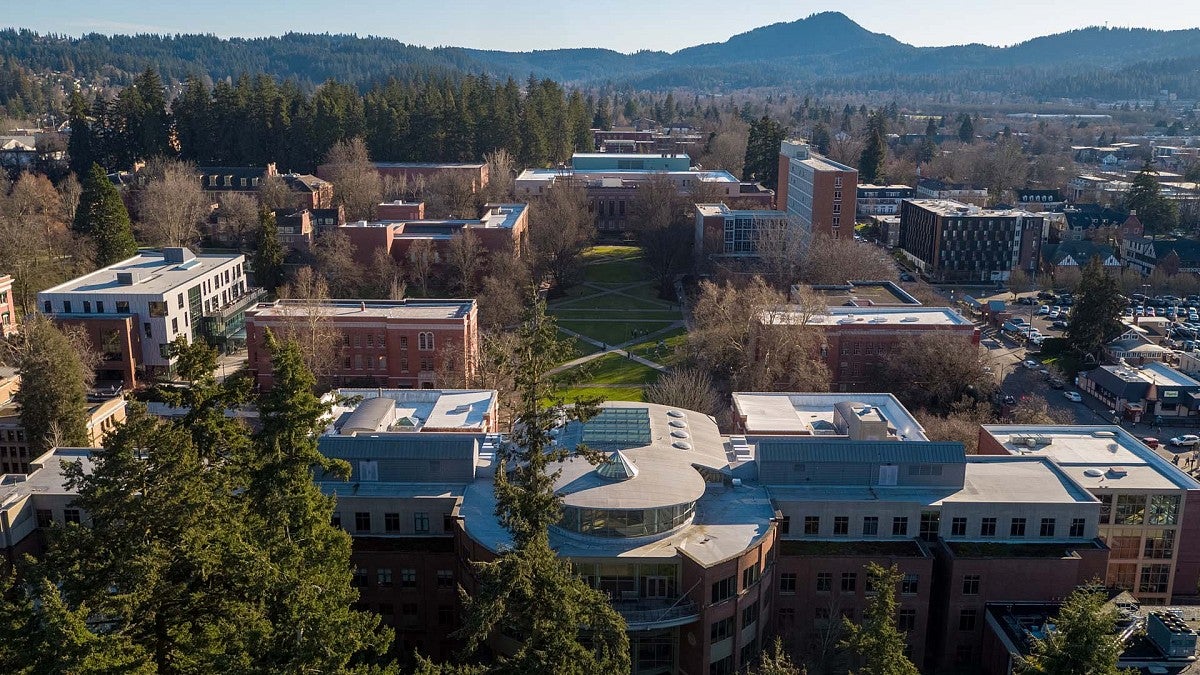
University of Oregon graduate programs in education and law specialty programs are among the top in the country, according to the latest U.S. News & World Report Best Grad Schools 2024.
The UO College of Education’s special education program is ranked No. 3 in the nation for the 25th year in a row and is No. 2 among public schools. The special education program’s success is boosted in part due to the college’s accomplished faculty, national reputation and record-high year in funded research: $57.36 million.
“The special education program allows students to learn from leading researchers,” said Laura Lee McIntyre, dean of the College of Education. “Our faculty are pushing the field forward to improve the lives of children and families, and students are actively engaged in the process through coursework, applied practice and research. Graduates of the program are highly sought after, future leaders in the field.”
The University of Oregon School of Law is the only Pacific Northwest law school to boast three top-ranked specialty programs. Oregon Law’s Legal Research and Writing Program leads the way at No. 1. This is the second year the school holds the top spot alone and marks the 17th consecutive year in the top 10 nationally.
“Our LRW faculty at Oregon Law are leaders and innovators with national recognition,” said Suzanne Rowe, James L. and llene R. Hershner Professor and director of legal research and writing. “Our faculty earn awards for teaching and service, lead national organizations and scholarly journals, and publish important books and articles. The LRW program is proud to continue its long tradition, since 1978, of preparing students for real-world legal practice.
Oregon Law’s Environmental and Natural Resources Law Center continues a legacy of leadership in environmental law, receiving the No. 7 ranking in the nation, up two spots from the previous year.
“Motivated by our accomplishments, our shared aspirations, and our sense of urgency, our community is excited to be recognized for our focus on problem-solving and accelerating meaningful change across legal and environmental fields,” said Mary Wood, Philip H. Knight Professor of Law and faculty director for the Environmental and Natural Resources Law Center.
Oregon Law’s Appropriate Dispute Resolution Program is No. 11. For more than 20 years, the award-winning Appropriate Dispute Resolution Center has maintained a national reputation by providing students with an educational experience that emphasizes skillful management of disputes, deals and decision-making.
“To continue to be named a top dispute resolution program is a testament to our expert faculty leading the way in developing innovative approaches in and outside the classroom,” said Jennifer Reynolds, Orlando John and Marian H. Hollis Professor of Law, associate dean for academic affairs, and faculty director for the Appropriate Dispute Resolution Center. “Our commitment to excellent teaching and skills-based learning helps our students manage complex interactions insides and outside traditional legal settings.”
To see a complete list, visit the U.S. News & World Report website of the rankings . This year’s list was released April 9.
— By Molly Blancett, University Communications
Submit Your Story Idea
Subscribe to Around the O
Two Florida law schools were just ranked among the nation’s top 50 by U.S. News
Florida now boasts two law schools ranked in the nation’s top 50 — and five schools in the top 100, according to U.S. News and World Report.
In its newly released annual rankings of the best graduate schools in four categories, U.S. News placed the University of Florida’s law school in a tie for 28 th nationwide. That’s a drop from last year, when it was rated 22 nd .
But meanwhile, FSU’s law school surged into the top 50, rating at 48 th . That’s an eight-point jump from a year ago.
Three more Florida law schools dropped from last year but remain in the top 100 – Florida International University (68), the University of Miami (82) and Stetson University (98).
U.S. News ranks law schools based on 10 factors , giving the most weight to students' job placements 10 months after graduation, Bar exam passage rates and evaluations of the schools from legal professionals and academics at other law schools.
Here are the top 5 Florida law schools on U.S. News’ list:
28. (tie) University of Florida (down 6)
48. (tie) Florida State University (up 8)
68. (tie) Florida International University (down 8)
82. (tie) University of Miami (down 11)
98. (tie) Stetson University (down 14)
The top law school overall? It was a tie between Stanford University and Yale University.
To see U.S. News' full law school rankings click here .
Andrew Marra is a reporter at The Palm Beach Post. Reach him at [email protected] .
These are the best graduate school programs in Wisconsin, according to U.S. News & World
Top graduate schools in Wisconsin landed on the latest U.S. News & World Report list ranking more than 2,000 programs across the country. U.S. News & World Report published its 2024-'25 report in April, ranking graduate programs in business, education, law and nursing, among other fields.
University of Wisconsin-Madison's the School of Education tied for first overall with Teacher's College, Columbia University, according the report. That's up from third overall and second among public universities last year.
Several of Marquette University's graduate programs moved up on the list, including the master's program in the College of Nursing, which moved up from 66 to 58.
Schools were evaluated based on expert opinion and statistical data measuring the quality of the school's faculty, research and post-graduate outcomes. You can find the full list on the U.S. News website for graduate rankings on their website www.usnews.com/best-graduate-schools .
Top business graduate programs in Wisconsin:
- University of Wisconsin-Madison: #43
Top law graduate programs in Wisconsin:
- University of Wisconsin-Madison: #36 (tie)
- Marquette University: #68 (tie)
Top nursing graduate programs in Wisconsin:
- Marquette University: #58 (tie)
- University of Wisconsin-Milwaukee: #82 (tie)
- University of Wisconsin-Eau Claire: #107 (tie)
- University of Wisconsin- Oshkosh: #118
- Alverno College: #119 (tie)
- Milwaukee School of Engineering: #153-169
Top medical graduate programs in Wisconsin:
- University of Wisconsin-Madison: #35 (tie)
Top education graduate programs in Wisconsin:
- University of Wisconsin-Madison: #1 (tie)
- University of Wisconsin-Milwaukee: #169 (tie)
- Marquette University: #192
Top Engineering graduate programs in Wisconsin:
- University of Wisconsin-Madison: #27 (tie)
- Marquette University: #142 (tie)
- University of Wisconsin-Milwaukee: #177 (tie)
RELATED: Here's how Wisconsin universities ranked in the 2024 Best Colleges list

Visit U of I
Learn about the many reasons the University of Idaho could be a perfect fit for you. Schedule Your Visit
- Discover a Career
- Find a Major
- Experience U of I Life
More Resources
- Admitted Students
- International Students
Take Action
- Find Financial Aid
- View Deadlines
- Find Your Rep
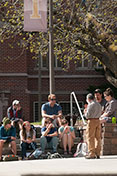
Helping to ensure U of I is a safe and engaging place for students to learn and be successful. Read about Title IX
Get Involved
- Clubs & Volunteer Opportunities
Campus Recreation
- Student Government
- Sustainability Center
- Academic Assistance
- Safety & Security
- Career Services
- Health & Wellness Services
- Register for Classes
- Dates & Deadlines
- Financial Aid
- U of I Library

Homecoming Oct. 14 - 21
Join other Vandal families for a week of celebration and Vandal traditions. View Calendar
Stay Connected
- Upcoming Events
- Here We Have Idaho Magazine
- Support Services
- About Moscow
- Commencement
- Dads' Weekend
- Moms' Weekend
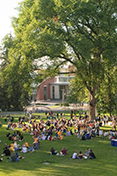
- U of I Retirees Association
UIRA has a membership of nearly 500 from every part of the University. Learn about UIRA
- Submit Class Notes
- Make a Gift
- View Events
- Vandal Pride Products
- Vandal Voyagers Program
- Alumni Chapters
- University Magazine
- Alumni Newsletter

Gym memberships and wellness class passes are available for faculty, staff and their spouses. Get Healthy
Common Tools
- Administrative Procedures Manual (APM)
- Class Schedule
- ITS Tech Support
- Academic Dates & Deadlines
- Daily Register
- Faculty Senate
- Staff Council
Application Management
Office of admissions.
Physical Address: University of Idaho Bruce M. Pitman Center 709 Deakin Street Rm 117 Moscow, ID 83844
Mailing Address: University of Idaho 875 Perimeter Drive MS 4264 Moscow, ID 83844-4264
Phone: 208-885-6326
Fax: 208-885-9119
Email: [email protected]
Web: Office of Admissions
Physical Address: University of Idaho Boise 322 E. Front St Boise, ID 83702
Email: [email protected]
Web: Boise Center
Coeur d'Alene
Physical Address: University of Idaho Coeur d'Alene 1031 N Academic Way Suite 242 Coeur d'Alene, ID 83814
Web: Coeur d'Alene Center
Idaho Falls
Physical Address: University of Idaho Idaho Fall 1776 Science Center Dr. Suite 306 Idaho Falls, ID 83840
Web: Idaho Falls Center
Biden Graduated 76th in a Class of 85 at Syracuse University College of Law in 1968?
A meme about joe biden's placement in his 1968 graduating class went viral in april 2024., jordan liles, published april 22, 2024.

About this rating
In April 2024 – just months away from the November U.S. elections – a meme was virally shared on Facebook , X and other websites showing a past photo of President Joe Biden with the words, "Graduated 76th in a Class of 85." As of this writing, it was unclear who created the meme or where it was first posted. Searches with reverse-image search tools showed few results.
One of the popular posts appeared as follows:
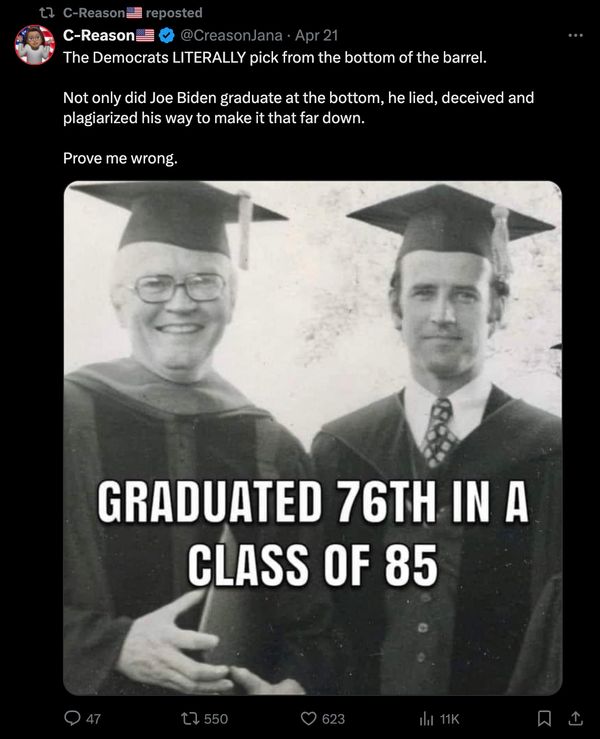
"Did Biden graduate 76th out of a class of 85?," a reader asked Snopes in email. "Saw it posted by a friend on Facebook today 4/19 with an image of a grad that looks kinda like him shaking hands with someone else. Both in regalia. Black & white photo."
This claim was true. Biden finished 76th academically in a class of 85 at Syracuse University College of Law in 1968. This fact was previously confirmed in decades-old reporting from The Associated Press , The New York Times , The Washington Post and others. Many of the dated reports publishing this news cited records that Biden himself released in the late 1980s.
The picture featured in the meme showed Biden with the Rev. William J. Byron, the former president of the University of Scranton. It was captured at the 1976 undergraduate commencement ceremony where Biden – then a U.S. senator – received an honorary degree and addressed students with a speech. Byron died at the age of 96 on April 9, 2024, just days before the meme went viral.
The Syracuse University College of Law Alumni Association once published a letter mentioning Biden's low placement in his graduating class. "But statistics often prove not to be the predictor of one's abilities or prospects," the letter read. "And, indeed, it was after leaving Syracuse that his life and career took off."
On this same subject, Snopes previously reported on Biden's past false claim where he said he finished in the "top half" of his class at Syracuse. That and other false claims about his past – including a plagiarism scandal – reportedly factored in to his decision to drop out of the 1988 presidential race.
Snopes contacted Syracuse University College of Law to request records regarding this matter. We will update this story if we receive any further details.
"Biden Made Tall Claims, Article Says." Charlotte Observer via The Washington Post , 21 Sept. 1987, https://www.newspapers.com/image/625387830/?terms=biden&match=1.
"Biden Urges Students to Be Engaged Citizens at 1976 Commencement." Royal News | The University of Scranton , 18 Nov. 2020, https://news.scranton.edu//articles/2020/11/news-biden.shtml.
Joseph R. Biden Jr, Class of 1968 . Syracuse University College of Law Alumni Association, https://law.syracuse.edu/wp-content/uploads/VP_Biden_Citation.pdf.
Liles, Jordan. "Did White House Announce Biden's IQ Is 187?" Snopes , 30 Jan. 2024, https://www.snopes.com//fact-check/biden-187-iq/.
"Rev. William J. Byron, S.J., The University of Scranton's 21st President Dies." Royal News | The University of Scranton , 9 Apr. 2024, https://news.scranton.edu//articles/2024/04/news-president-byron.shtml.
"Sen. Joe Biden Claimed during a Campaign Appearance in New Hampshire Last Spring That He Finished in the Top Half of His Law School Class, Although Records Indicate He Finished near the Bottom." The Associated Press , https://apnews.com/article/cd977f7ff301993f7976974ba07c5495.
"The Candidates For Vice President." Newsday , 2 Nov. 2008, p. K7, https://www.newspapers.com/image/730761354/.
Toner, Robin. "Biden Assails New Report of Dishonesty." The New York Times , 21 Sept. 1987, https://www.nytimes.com/1987/09/21/us/biden-assails-new-report-of-dishonesty.html.
Waxman, Olivia B. "Why Joe Biden's First Campaign for President Collapsed After Just 3 Months." TIME , 30 July 2019, https://time.com/5636715/biden-1988-presidential-campaign/.
By Jordan Liles
Jordan Liles is a Senior Reporter who has been with Snopes since 2016.
Article Tags
How to Find a Strong Human Rights Law Program
Target law schools with human rights law clinics and journals, as well as a broad selection of relevant courses.
Find a Strong Human Rights Law Program

Getty Images
An introductory course on human rights law is a start, but a good human rights law program should have a variety of related course offerings.
Key Takeaways:
- Look for more than an introductory course on human rights law.
- Find out what law faculty know and are doing that's relevant.
- Find out what the school's students specializing in human rights law do after graduating.
Clinical opportunities, quality professors and active student organizations are important criteria when choosing a law school with a solid human rights program, experts say, and students should carefully research programs to find their best fit.
The Human Rights Clinic at the University of Miami School of Law "played a major role in my decision of where to attend law school,” says Gita Howard, a human rights attorney who graduated from the Florida law school in 2021.
Howard’s initial interest in pursuing international human rights law was formed during the many summers she spent in India growing up. She says she developed a nuanced understanding of global issues and a drive to create a positive global impact.
“International human rights law seemed like a tangible and meaningful way to pursue my passion for social change.”
Finding a strong human rights law program is important to prepare students for a successful career as a human rights lawyer, experts say. Here are the top features they say students should be looking for in a program.
A Broad Selection of Human Rights Law Courses
An introductory course on human rights law is a start, but a good human rights law program should have a variety of related course offerings, experts say.
Prospective students should research whether the program offers courses “on the full spectrum of international human rights law,” says Diane A. Desierto, professor of law and global affairs at the University of Notre Dame Law School in Indiana, where she also is faculty director of the LL.M. in International Human Rights Law and founding director of the Global Human Rights Clinic.
Such courses should include civil, political, economic, social, cultural, developmental, environmental and labor topics, “as well as the frontier courses on the expanding applications of international human rights law across public law and private law ,” she says.
Desierto says students should also find out whether a program offers legal and interdisciplinary methods, as well as theoretical and experiential opportunities to gain expertise in international human rights law.
Experienced Human Rights Law Faculty
Other features to look for in a program are faculty actively working on human rights law projects, faculty publishing human rights law papers and scholar-practitioners.
Notre Dame's program, for example, enables students “to customize their learning, training, and mentoring according to specific professional objectives across different forms of human rights law practice,” Desierto says. The small class sizes mean students have access to one-on-one mentoring and customized learning from different experts throughout the university and its global campuses abroad.
Students already in law school who want to specialize in human rights "should be researching which faculty are specializing in human rights in their scholarship and courses,” says Anna Ivey, founder of Ivey Consulting, which helps people apply to selective U.S. colleges and law schools.
An Impressive Job Attainment Record
Desierto says it's important to look into whether a program invests in the well-being and success of their students during and after graduation.
“Our program does this extensively during the student's matriculation into the program, as well as in supporting postgraduate clerkships and internships in international, regional and national courts and tribunals and organizations,” Desierto says. The program measures success by how its students "flourish and succeed in their work of striving for human rights outcomes in their respective countries and communities."
It's also important to find out whether alumni are working with major human rights institutions. Ivey recommends students check law schools' social media platforms, such as LinkedIn, "to see what alums work in the field to get a sense of the alumni network for that specialization.”
A Human Rights Clinic or Law Journal
Participating in a human rights law clinic or contributing to human rights law journals is important on the resumes of aspiring human rights lawyers, as positions in the field are competitive, experts say.
“Human rights clinics provide a really critical opportunity for students to develop their knowledge of human rights law, as well as practice the necessary skills to succeed in the field under the guidance of experts,” Howard says.
For example, the Human Rights Clinic at the University of Miami provides students with experiential learning opportunities in U.S. and international human rights litigation and advocacy, allowing students to work with the United Nations and the African Court on Human and Peoples' Rights.
“Its inspiring professors and meaningful projects gave me the skills, support and network necessary to pursue a career in human rights law,” Howard says.
Apart from looking at whether a law school offers clinics or journals dedicated to human rights law, Ivey recommends looking at whether such a journal “hosts some kind of annual symposium on the topic.”
Other activities, such as participation in relevant student groups, are important, experts say. For example, Howard served as president and co-founder of the Human Rights Society, an advocacy organization at her school.
Scholarships and Fellowships
Law school can be expensive and human rights law may not pay as well as other law specialties, so scholarship opportunities are an important consideration, experts say.
Experts say a law school’s investment in human rights law can be seen in scholarships offered to students in the discipline. Students can check a school's website for scholarship information. Notre Dame's program typically provides full scholarships for 15 to 20 students, Desierto says.
There are also fellowships available during and after law school. Twice, Howard was a HOPE Fellow, receiving funding to pursue public interest summer jobs while in law school. She spent her first summer interning at the Tibetan Legal Association in Dharamsala, India, and her second summer as an intern for the U.N.'s Office of Legal Affairs in the general legal division.
“After law school, a common way to break into the human rights field is through a fellowship with a human rights organization,” Howard says.
Howard received a Human Rights Program Fellowship from her law school with a placement at Human Rights First, a nonprofit, nonpartisan international human rights organization. After her fellowship, she was brought on as an associate attorney. She notes that fellowship opportunities often require funding from a student's law school, as well.
“It can be helpful for students to research whether fellowship funding is currently or potentially available at a prospective law school,” Howard says.
35 Law Degree Jobs

Tags: law school , human rights , graduate schools , education , students
Popular Stories
Law Admissions Lowdown

Top Law Schools

Medical School Admissions Doctor

Morse Code: Inside the College Rankings

You May Also Like
What to ask law students and alumni.
Gabriel Kuris April 22, 2024
Environmental Health in Medical School
Zach Grimmett April 16, 2024
How to Choose a Law Career Path
Gabriel Kuris April 15, 2024
Questions Women MBA Hopefuls Should Ask
Haley Bartel April 12, 2024

Law Schools With the Highest LSATs
Ilana Kowarski and Cole Claybourn April 11, 2024

MBA Programs That Lead to Good Jobs
Ilana Kowarski and Cole Claybourn April 10, 2024

B-Schools With Racial Diversity
Sarah Wood April 10, 2024

Law Schools That Are Hardest to Get Into
Sarah Wood April 9, 2024

Ask Law School Admissions Officers This
Gabriel Kuris April 9, 2024

Grad School Housing Options
Anayat Durrani April 9, 2024

- 10 colleges and universities shaping the future of cybersecurity education
Institutions featured on this list often provide undergraduate and graduate degrees, courses, as well as certificate programs tailored to meet the growing demand for cybersecurity professionals in various industries.

Some notable colleges and universities renowned for their cybersecurity programs and courses include:
Carnegie Mellon University (USA)
Information Networking Institute (INI)
The Information Networking Institute (INI) at Carnegie Mellon University (CMU) educates and develops engineers through technical, interdisciplinary master’s degree programs in information networking, security and mobile and IoT engineering that incorporate business and policy perspectives.
Program : Master of Science in Information Security (MSIS)
Georgia Institute of Technology (USA)
Institute for Information Security & Privacy (IISP)
The Georgia Institute of Technology’s Institute for Information Security & Privacy (IISP) is a research institution dedicated to advancing cybersecurity and privacy technologies. Established within Georgia Tech, the IISP serves as a focal point for interdisciplinary research, education, and collaboration in the field of information security and privacy.
Program : Master of Science in Cybersecurity
Massachusetts Institute of Technology (USA)
MIT Department of Electrical Engineering and Computer Science
A joint venture between the Schwarzman College of Computing and the School of Engineering, EECS is grounded in three overlapping sub-units: electrical engineering (EE), computer science (CS), and artificial intelligence and decision-making (AI+D).
- Computer Science and Engineering
- Artificial Intelligence and Decision Making
Stanford University (USA)
Cyber Policy Center and Computer Science Department
The Cyber Policy Center brings together researchers across the Stanford campus to solve the biggest issues in cybersecurity, governance and the future of work.
- Global Digital Policy Incubator
- The Program on Platform Regulation
- Geopolitics, Technology, and Governance
SANS Technology Institute (USA)
An independent subsidiary of SANS, the SANS Technology Institute offers graduate programs (master’s degree and graduate certificates) that develop technically-adept leaders and undergraduate programs (bachelor’s degree and undergraduate certificate) for people who want to enter the cybersecurity field.
Program : Cybersecurity Master’s Degree
University of California, Berkeley (USA)
School of Information
The School of Information is a graduate research and education community committed to expanding access to information and to improving its usability, reliability, and credibility while preserving security and privacy. This requires the insights of scholars from diverse fields — information and computer science, design, social sciences, management, law, and policy.
Program : Master of Information and Cybersecurity (MICS)
University of Cambridge (UK)
Department of Computer Science and Technology
The Department of Computer Science and Technology (formerly known as the Computer Laboratory) is the academic department within the University of Cambridge that encompasses computer science, along with many aspects of technology, engineering and mathematics.
- Cybersecurity
- Software and Security Engineering
University of Oxford (UK)
Global Cyber Security Capacity Centre (GCSCC)
The Global Cyber Security Capacity Centre (GCSCC) is an international centre for research on efficient and effective cybersecurity capacity-building, promoting an increase in the scale, pace, quality and impact of cybersecurity capacity-building initiatives across the world.
Course : MSc in Software and Systems Security
Technische Universität Darmstadt (Germany)
Department of Computer Science
The scientists of the Department of Computer Science combine their diverse research activities in three main research areas:
- Artificial Intelligence
- Complex Networked Systems
- Cybersecurity & Privacy
Program : Master’s degree program IT Security
Tel Aviv University (Israel)
Research is a cornerstone of Tel Aviv University’s mission, with its scholars making discoveries in fields ranging from biotechnology and cybersecurity to archaeology and social sciences.
- Cyber Security Program
- Cyber Politics & Government

Fill out the form to get your copy of this whitepaper and find out what it takes to join a growing industry:
- I have read and agree to the Privacy Policy and would like to be updated on ISC2 certifications, educational resources, and offers.
- Carnegie Mellon University
- cybersecurity
- skill development
- University of Cambridge
Featured news
- Russian hackers’ custom tool exploits old Windows Print Spooler flaw (CVE-2022-38028)
- CrushFTP zero-day exploited by attackers, upgrade immediately! (CVE-2024-4040)
- The rising influence of AI on the 2024 US election
- eBook: Why CISSP?
- Whitepaper: Why Microsoft’s password protection is not enough
- Guide: Application security posture management deep dive
- What is multi-factor authentication (MFA), and why is it important?
- MITRE breached by nation-state threat actor via Ivanti zero-days
Big Law Skips Ahead of On-Campus Recruiting in Talent Race (1)
By Meghan Tribe and Tatyana Monnay

Top law firms are rushing to target new recruits, often before students have finished their first year.
On-campus interviews, long the chief recruiting method for major firms and controlled by law schools and the National Association for Law Placement, now take a back seat to direct hiring by firms who want first crack at talent. The coveted summer associate roles are the most common path to Big Law careers, serving as a tryout for full-time positions after graduation.
“This direct hire process will likely be filling about 50% of our class, at least,” said Nicole Wanzer, director of attorney recruiting at Morrison Foerster. “Were we to wait for traditional OCI and lean only on traditional OCI, we feel like we would be missing out on some of the talent that’s getting picked up earlier in the process.”
The shift has had a snowball effect. Weil Gotshal & Manges has already opened applications for its 2025 summer program, allowing first-year law students to apply directly—a process dubbed “pre-OCI”. Other prominent players such as Jones Day, Milbank LLP, Paul Hastings, and Davis Polk & Wardwell open up their direct applications as early as mid-April for jobs that start the summer after the second year of school is completed. MoFo is launching its own advanced consideration application system for first-year students this year, which opens May 1.
The whirlwind means law firms are making hiring decisions based on smaller academic records and students now have even less time to make important career choices.
“You don’t give the law students as much time to figure out what law school is all about,” said Scott Ellis, who was hiring partner for Foley & Lardner’s Houston office for the past decade. “Right out of the box, you’re looking at them as new hires.”
‘Free Market System’
On-campus interviews have been a mainstay of law firm recruitment for decades. The process traditionally was structured by individual schools and NALP, which issued guidelines on how and when the firms could access candidates.
Although the process varied, many of the top schools used a lottery system that allowed students to sign up for interviews with firms during OCI. Firms were discouraged from making any contact before December 1 of the first year, and candidates had 28 days to weigh offers.
NALP loosened its guidelines in 2018, scrapping the Dec. 1 ban and the 28-day decision window. The group said firms and schools no longer benefited from a one-size-fits-all approach. The coronavirus pandemic shifted all on-campus interviews to virtual two years later.
Firms took the ball and ran.
“What we’re seeing is the free market system,” said Nikia Gray, NALP’s executive director.
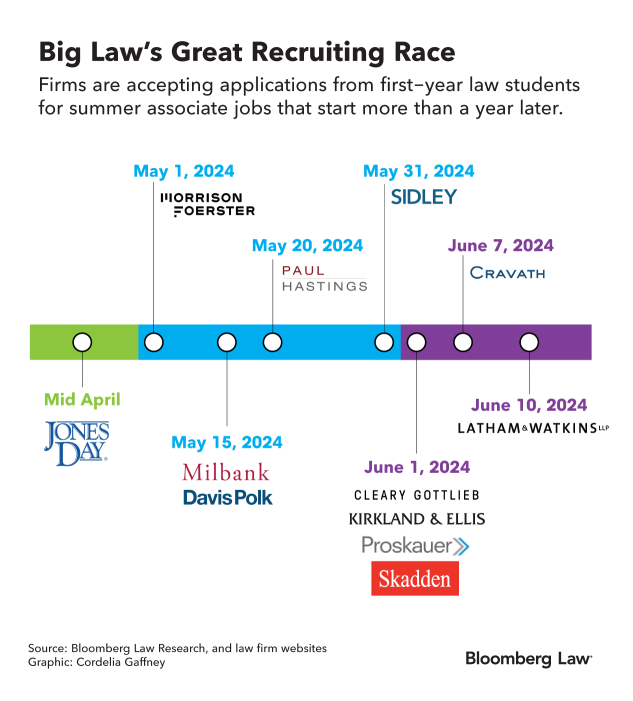
Firms have now shifted recruiting to their own online platforms and encourage students to apply ahead of their schools’ OCI. Nearly half (47%) of law firms’ summer program hires last year came outside of OCI recruiting, according to NALP.
A majority of firms (53%) that recruited through OCI reported a more than 10% decline in the number of screening interviews they conducted last year compared to 2022, according to NALP.
The move has its benefits for firms interviewing hundreds of candidates across the country.
Virtual interviewing has streamlined the process and reduced expenses for Morrison Foerster, according to Wanzer. It’s also allowed more partners to get involved in recruiting.
“I can’t imagine a scenario where we ever go back to flying attorneys all over the country in a two-week period of time to interview candidates,” she said.
The firm is still hitting campuses though, with MoFo representatives participating in more than 75 events at law schools each year. Every student it sees on campus is put into its recruiting system.
“Now we can engage with these students earlier in a more productive and robust way,” she said.
Compressed Timeline
Quinn Emanuel Urquhart & Sullivan has also expanded the amount and type of events it does on campuses. The litigation-focused firm is partnering with similarly focused law school groups, said Rebecca Fogler, Quinn’s national recruiting manager.
Alex Spiro, Elon Musk’s go-to lawyer and a partner at the firm, in March spoke with New York University’s mock trial group.
These kinds of events are meant to give students a “clear picture of both the personal and the professional side of the firm,” which can get lost in the haste of the new recruitment timeline, Fogler said.
Landing a job at the likes of Quinn Emanuel or MoFo can be lucrative for law students, who often graduate strapped with debt. Full-time associates make $225,000 to $435,000, based on seniority, plus bonuses that can clear six figures.
The new, compressed recruiting timeline gives those firms and their recruits mere weeks to make decisions, often without a full year of school transcripts available.
Morrison Foerster is considering adding new assessments or writing exercises to its interview process to help gauge applicants, Wanzer said.
“With the speed of the process, it’s definitely exacerbated the challenge to make sure that the talent you’re seeing—and, more so, the offers that you’re extending—are to people who are going to succeed,” she said.
Big Decision
For law students, the changes have made an already fraught process even more difficult.
Schools, which can provide valuable resume and interview assistance, are struggling to meet the new, often disjointed recruiting timeline, said Lauren Jackson, an associate dean in Howard University’s law student career services office. The law school sent 21% of its graduates to the 100 largest firms in the country last year, according to data compiled by Firm Prospects.
Howard has bumped up its first OCI session by a month, to begin in July. Firms at the same time are pushing students to decide quickly.
The majority of summer associate offers made outside of OCI last year were early offers, according to NALP. Nearly a quarter of those offers were made in June and half came in July.
Students responded within two weeks to more than 70% of the 10,500 summer associate offers made last year, NALP found. About 35% of those responses came within eight to 14 days.
Morrison & Foerster gives its candidates 14 days to accept summer offers. That allows it to manage recruiting numbers, Wazner said.
Quinn Emanuel takes a different approach. The firm allows students with pre-OCI offers to continue in the OCI process with other firms before deciding where they will spend their second-year summers. Forcing them to make decisions earlier puts students “at a disadvantage,” said Jennifer Barrett, co-managing partner of Quinn Emanuel’s New York office.
Firms are “putting pressure on students and making this process even more difficult” by making them decide on offers before the end of OCI, Barrett said.
Quinn Emanuel also saves a few spots in its first-year associates class for offers made to students in their final year of law school who didn’t spend the previous summer with the firm. Some students might want more of a litigation focus that was not available where they summered, Fogler said.
“We understand that sometimes people choose their 2L summer and it’s not always the best choice,” Fogler said.
“It’d be shortsighted to cut those people out of the process,” she said.
To contact the reporters on this story: Meghan Tribe at [email protected] , Tatyana Monnay at [email protected]
To contact the editors responsible for this story: Chris Opfer at [email protected] ; Alessandra Rafferty at [email protected]
Learn more about Bloomberg Law or Log In to keep reading:
Learn about bloomberg law.
AI-powered legal analytics, workflow tools and premium legal & business news.
Already a subscriber?
Log in to keep reading or access research tools.

IMAGES
VIDEO
COMMENTS
Yale University, Law School. PhD in Law. Yale University's Law School ranks first in the nation, with its 20 legal clinics offering an immersive experience for students. This PhD program has a purely academic focus. To qualify for admission, you'll need to already have a JD (Juris Doctor) degree.
Here are the 2024 Best Law Schools. Stanford University. Yale University. University of Chicago. Duke University. Harvard University. University of Pennsylvania (Carey) University of Virginia ...
These are the best law schools that can set the tone for your learning experience, career path and future. READ MORE. # 1. Stanford University (tie) Stanford, CA. # 1. Yale University (tie) New ...
The deadline for submission of all materials is December 15. Applicants to the Ph.D. in Law program must complete a J.D. degree at a U.S. law school before they matriculate and begin the Ph.D. program. Any questions about the program may be directed to Gordon Silverstein, Assistant Dean for Graduate Programs, at [email protected].
Discover which universities around the world are the best for law & legal studies with the QS World University Rankings by Subject 2024. Harvard University continues to be the best university in the world for studying law, achieving a perfect score in three of the four indicators used to compile the ranking.
The Doctor of the Science of Law (JSD) is the Law School's most advanced law degree, and is considered a doctorate equivalent to a Ph.D. It is designed for those interested in becoming scholars and teachers of law including interdisciplinary approaches to law. Study toward the degree is open only to a small number of exceptionally well ...
Contact the Graduate Program. The best way to get in touch with the Graduate Program Office is by email. For admissions, financial aid, billing, and visa-related questions, contact [email protected]. For all other questions, contact [email protected].
The Doctor of Juridical Science (S.J.D.) is Harvard Law School's most advanced law degree, designed for aspiring legal academics who wish to pursue sustained independent study, research and writing. In recent years we have created a vibrant intellectual community of young scholars from around the world, most of whom will secure teaching positions in their […]
Despite its relatively small size, Yale Law School has produced approximately ten percent of all professors currently teaching in American law schools. A recent study found that of the 189 faculty at the top sixteen law schools who had received their J.D. in the preceding fifteen years, a plurality—80 professors—graduated from Yale Law School.
The PhD in Law program prepares students who have earned a JD from an American Bar Association accredited law school to enter law teaching or other careers that require a scholarly mastery of law. The program is designed to provide a broad foundation in the canonical texts and methods of legal scholarship and to support students in producing original scholarship in the form of a dissertation.
Total Cost: $89,000 *. State: Connecticut. Acceptance: 6.53%. Unlike programs designed for students who wish to learn law from the disciplinary perspectives of the social sciences or the humanities, the Ph.D. in Law is directed at students who wish to pursue advanced studies in law from the perspective of the law.
University of Connecticut School of Law. University of Connecticut,Graduate School,HARTFORD, CT,3 Niche users give it an average review of 4 stars. Featured Review: Doctoral Student says I am currently a 1L at the university of Connecticut, School of Law. The best part of this program is that I am able to work during the day and go to school at ...
Berkeley Law's Jurisprudence and Social Policy Program offers a unique interdisciplinary graduate program leading to Ph.D. degrees for students interested in the scholarly study of legal ideas and institutions, policy analysis and applied research, and other areas. Learn more here. J.S.D. Berkeley Law's highest law degree is a 3-year doctoral ...
Doctor of Juridical Science (S.J.D.) Harvard Law School. Harvard Law School's most advanced law degree, the Doctor of Juridical Science (S.J.D.) is modeled on the very best Ph.D. programs in other disciplines, and is designed for aspiring legal academics who, through sustained independent study, research and writing, work to produce a ...
At UCLA Law, S.J.D. students are part of a diverse, vibrant, and thriving international graduate community, comprised of the best and brightest students from around the globe. Our select group of S.J.D. students - alongside members of the LL.M. community - hail from cultures near and far, representing over 30 different countries each year.
The Coordinated JD/PhD Program is designed for students interested in completing interdisciplinary work at Harvard University and is founded on the belief that students' legal studies and their arts and sciences graduate studies can be mutually enriched through this pursuit. Students completing the coordinated program receive a JD from ...
U.S. News law school rank: 108 (tie) Tuition and fees for full-time students (2023-2024): $41,040 per year in-state; $45,600 per year out-of-state Percentage of full-time grant recipients who ...
"The law school achieved the highest ranking in the school's history at No. 28," said Scalia Law Dean Ken Randall. "The part-time JD program remains among the top five nationally. Despite its relative youth, Scalia is ranked No. 3 among the 16 law schools in Virginia, Washington, D.C., and Maryland, behind only UVA and Georgetown."
Classics - Law. New York University. New York City, New York, United States. Juris Doctor - Divinity. Pepperdine University. Malibu Beach, California, United States. This page shows a selection of the available PhDs in United States. If you're interested in studying a Public Law degree in United States you can view all 56 PhDs.
Urban and Regional Planning. University of California, Irvine (UCI) Irvine, United States. Find the best PhD programmes in the field of Law from top universities in United States. Check all 0 programmes.
University of Oregon graduate programs in education and law specialty programs are among the top in the country, according to the latest U.S. News & World Report Best Grad Schools 2024. The UO College of Education's special education program is ranked No. 3 in the nation for the 25th year in a row and is No. 2 among public schools.
Florida now boasts two law schools ranked in the nation's top 50 — and five schools in the top 100, according to U.S. News and World Report.. In its newly released annual rankings of the best ...
Top graduate schools in Wisconsin landed on the latest U.S. News & World Report list ranking more than 2,000 programs across the country. U.S. News & World Report published its 2024-'25 report in ...
Best Places to Nap on Campus . New Student Planner . Graduate Students . Programs and Requirements . WRGP . ... International Graduate Ambassador Program . Documental Resources . Brochure . FAQs . Faculty and Staff Information . ... Law Students. Counselor Resources . Request Materials . Latest & Greatest Newsletters .
The Syracuse University College of Law Alumni Association once published a letter mentioning Biden's low placement in his graduating class. "But statistics often prove not to be the predictor of ...
Colleges, universities and graduate schools in Russia that offer graduate programs in the areas of engineering and applied sciences, computer science, business management, bio-chemistry, bio-medicine, medicine, law, education, chemical engineering, mechanical and fine arts leading to an MS, MBA or a Ph.D.
Our firm's multiple years of experience in many different areas of law, highly qualified lawyers and upholding of professional and ethical standards guarantee reliable legal protection for our clients. Address: Office 303, «The Yard» Business Centre, at No.11, bld.1, 1st Magistralnyi tupik, Moscow, 123290, Russia
Top Law Schools. Best Graduate Schools. Education. Home. ... Find the top-ranked graduate schools in business, education, law, nursing and other fields. Sarah Wood April 9, 2024. Load More.
The School of Information is a graduate research and education community committed to expanding access to information and to improving its usability, reliability, and credibility while preserving ...
Top law firms are rushing to target new recruits, often before students have finished their first year. ... Landing a job at the likes of Quinn Emanuel or MoFo can be lucrative for law students, who often graduate strapped with debt. Full-time associates make $225,000 to $435,000, based on seniority, plus bonuses that can clear six figures. ...